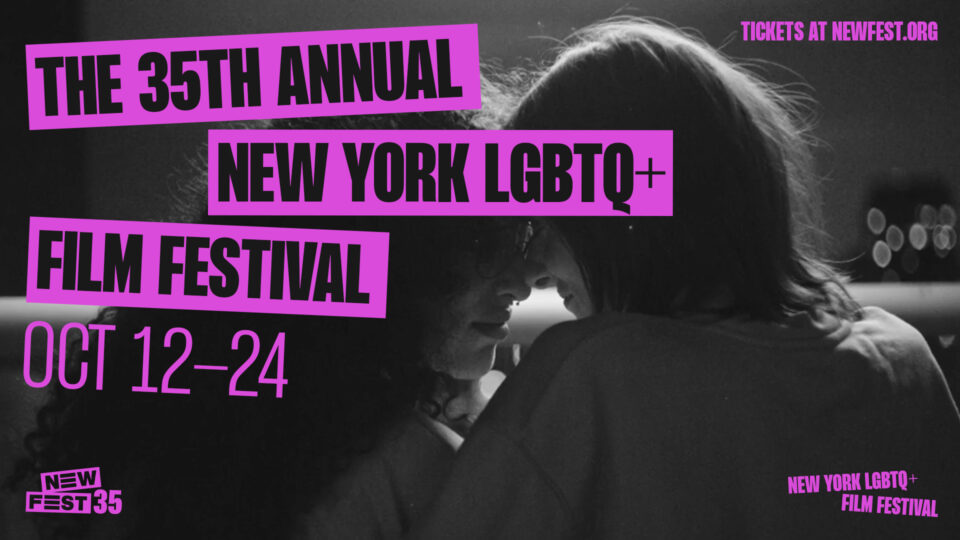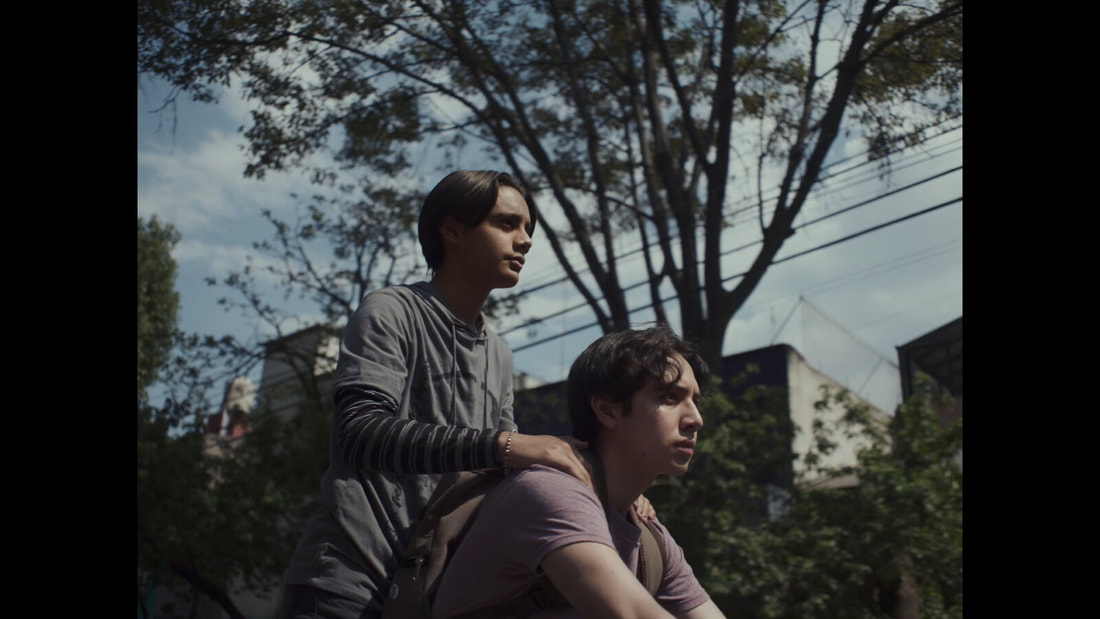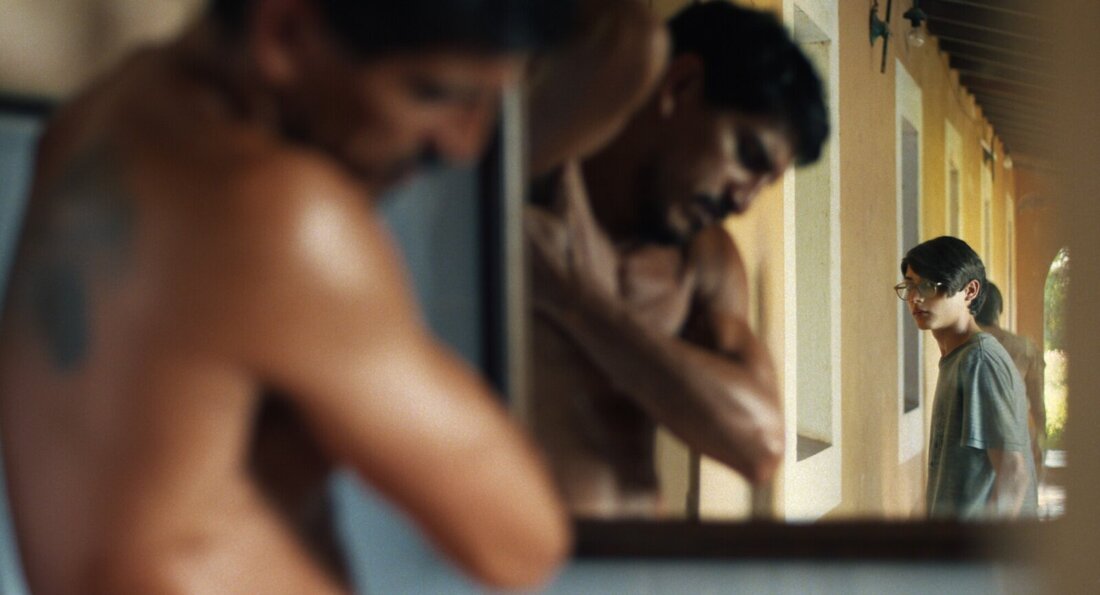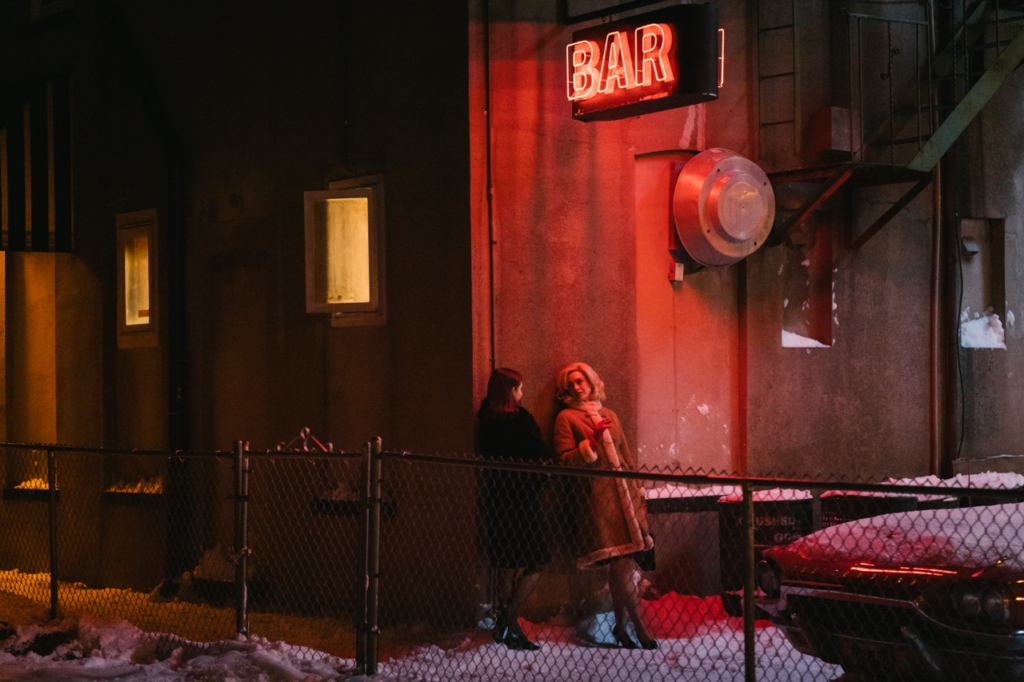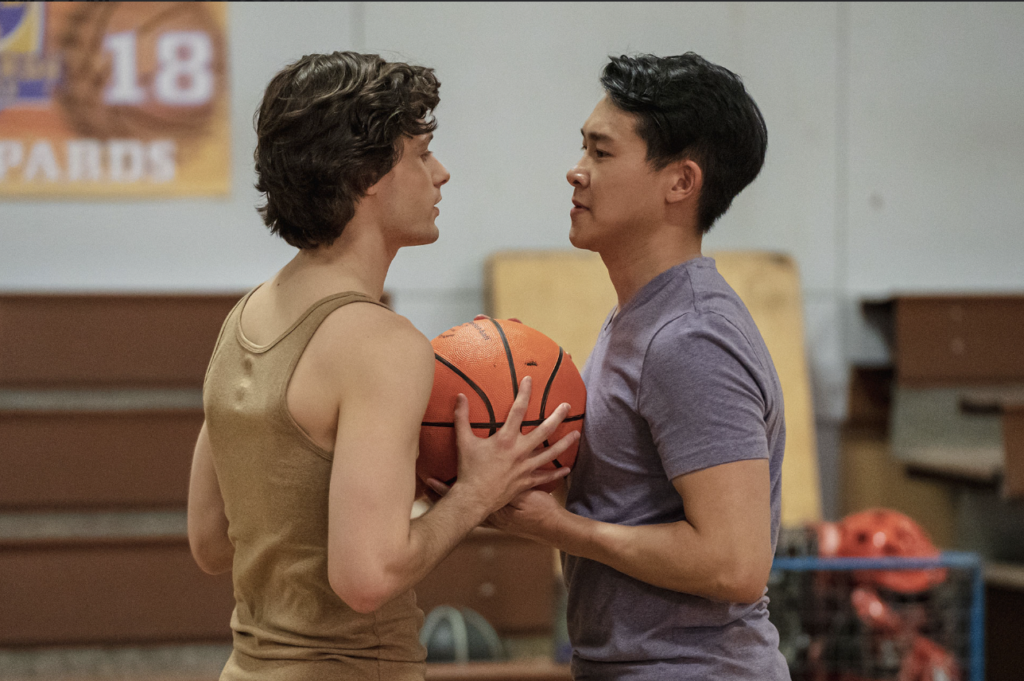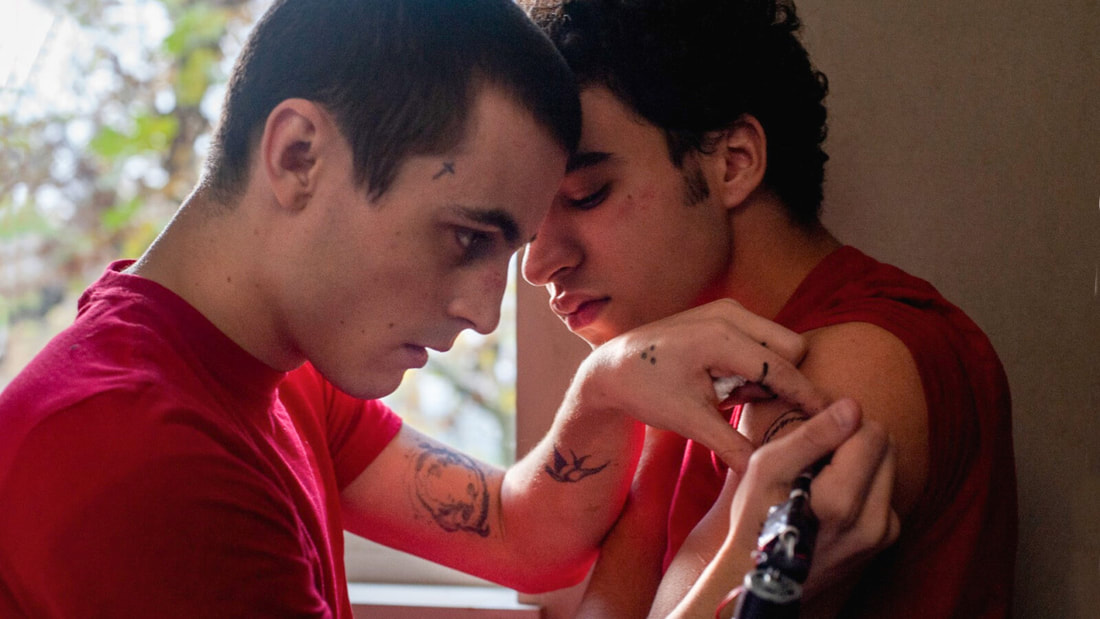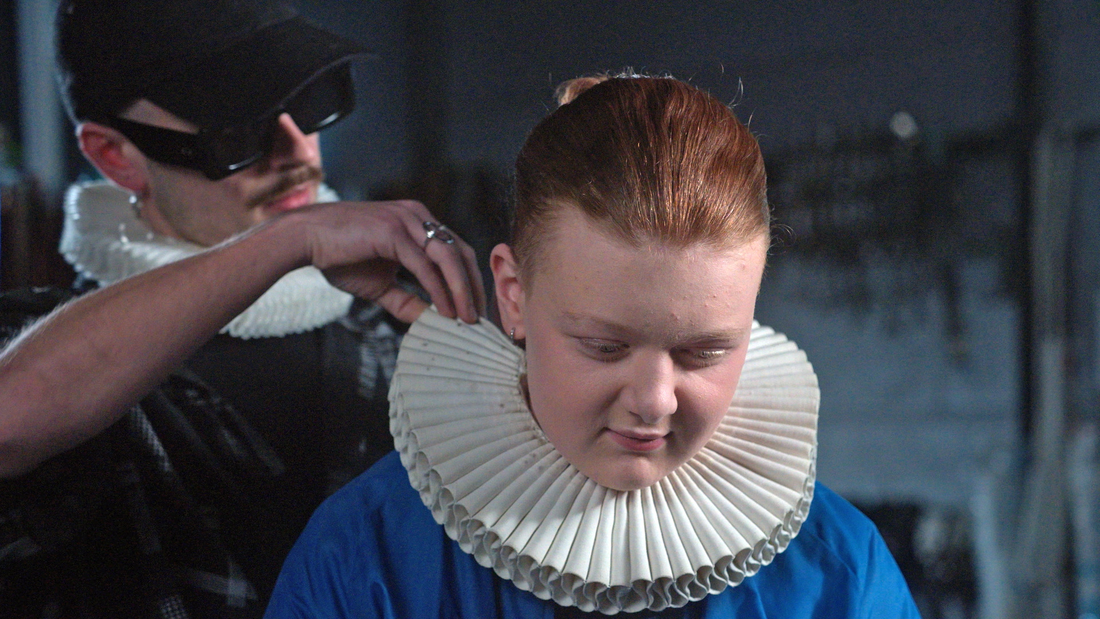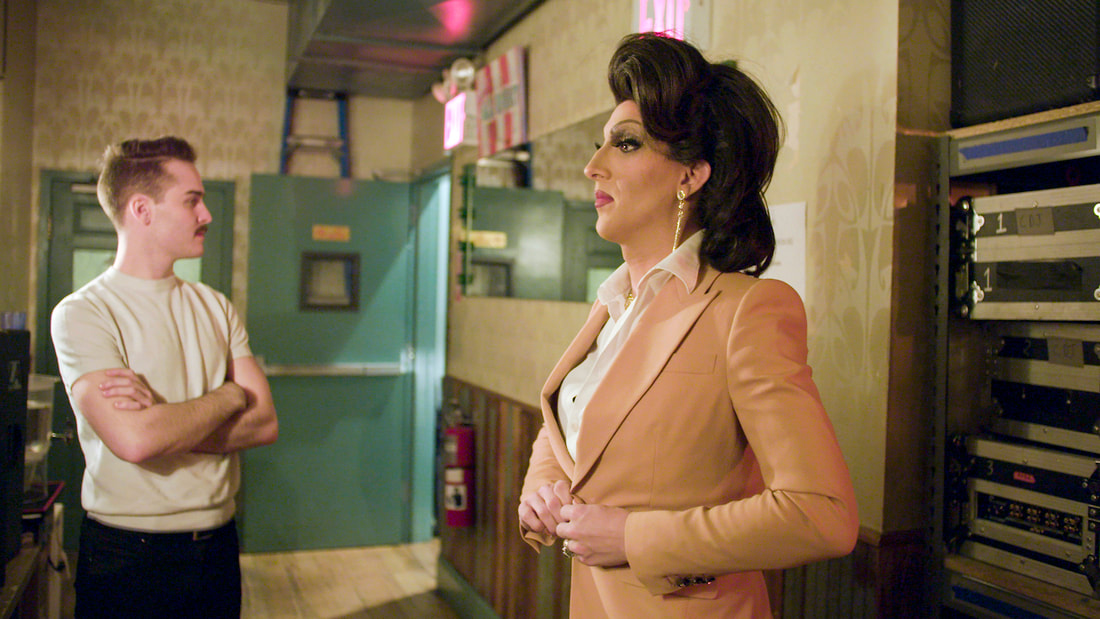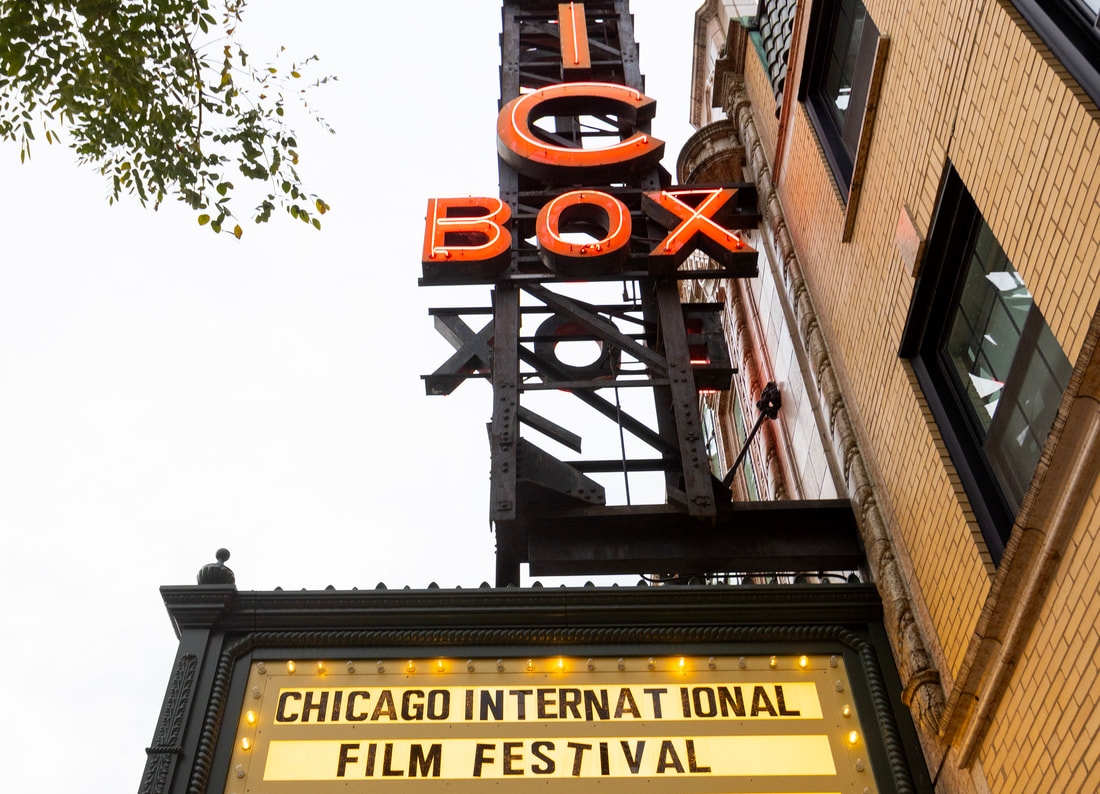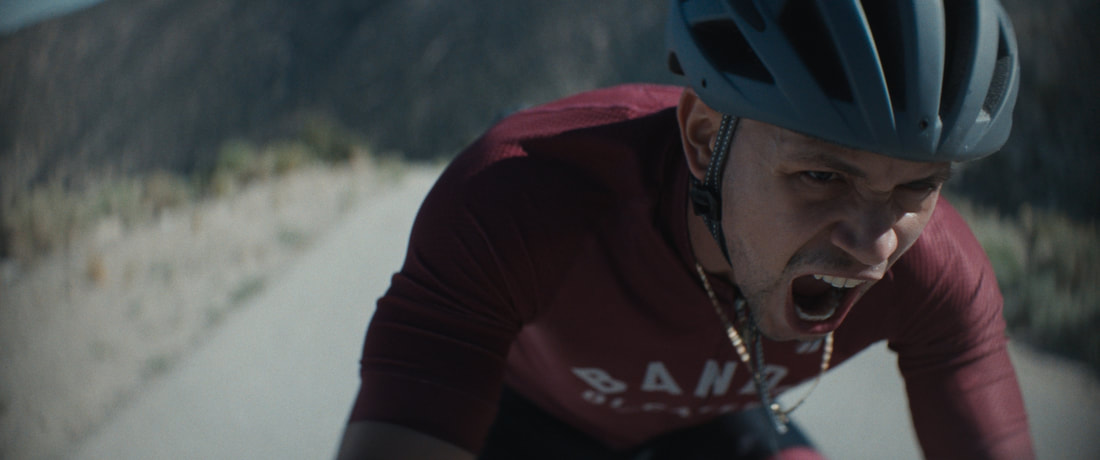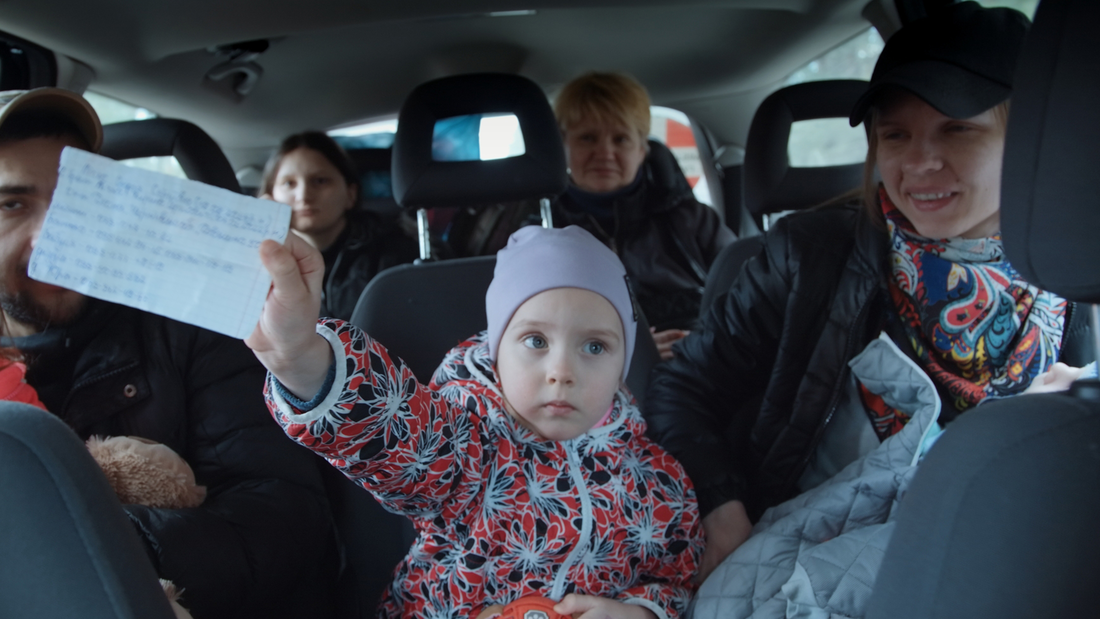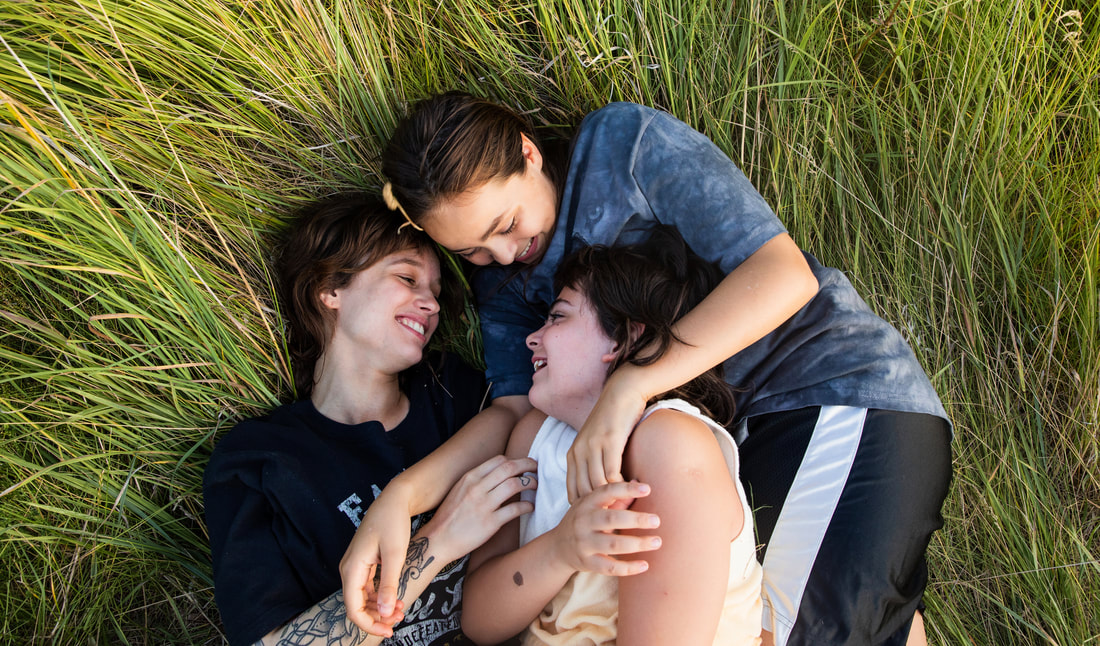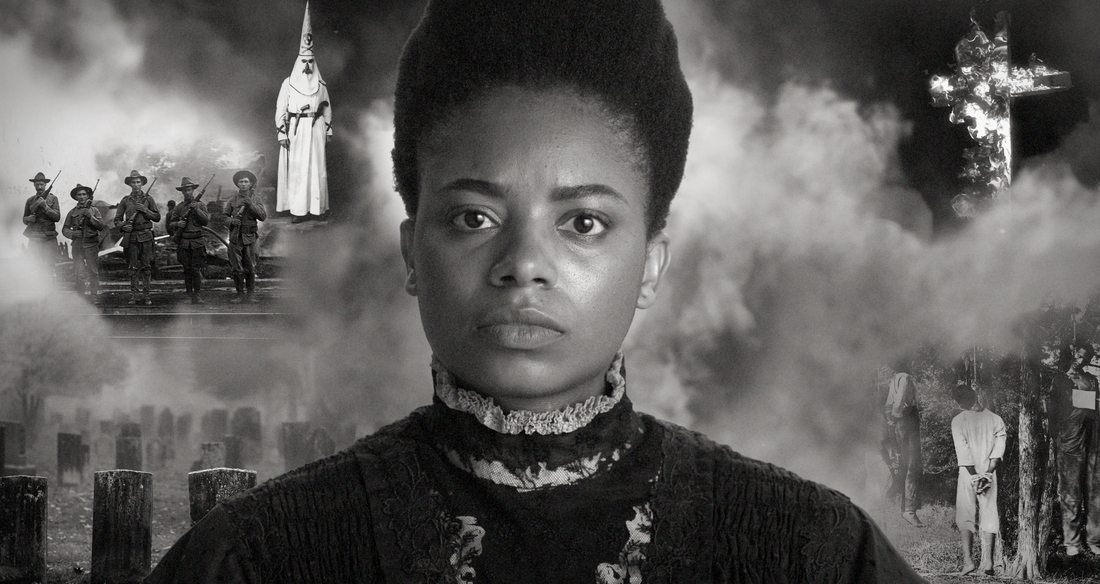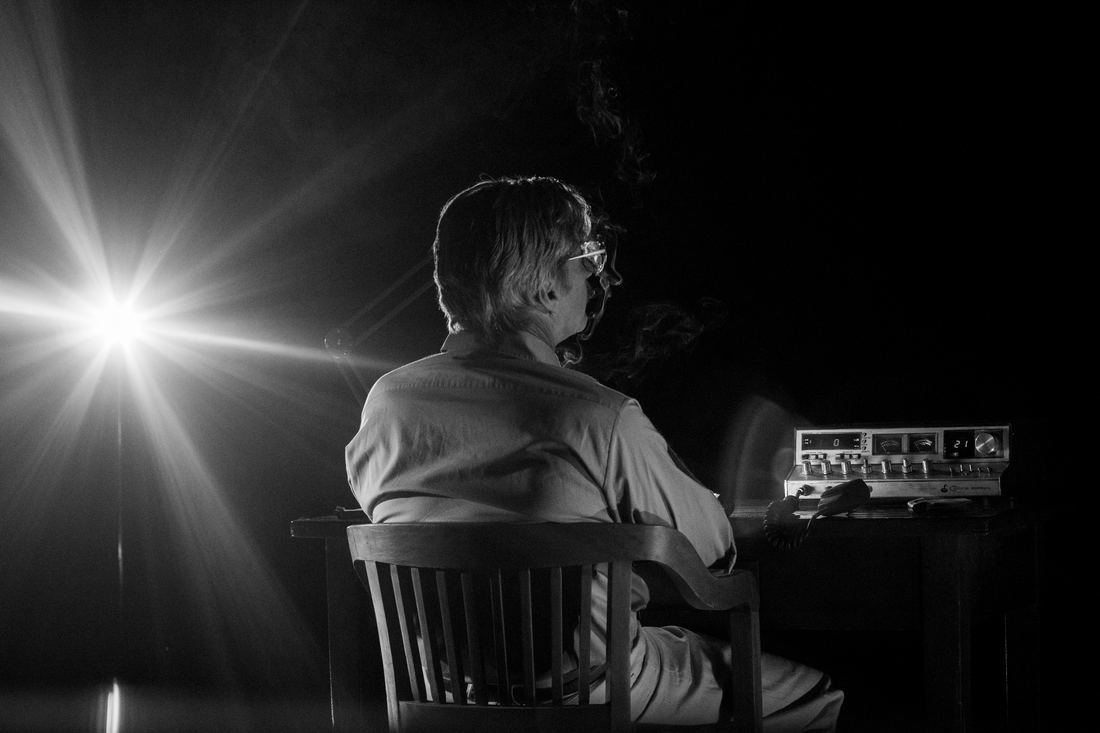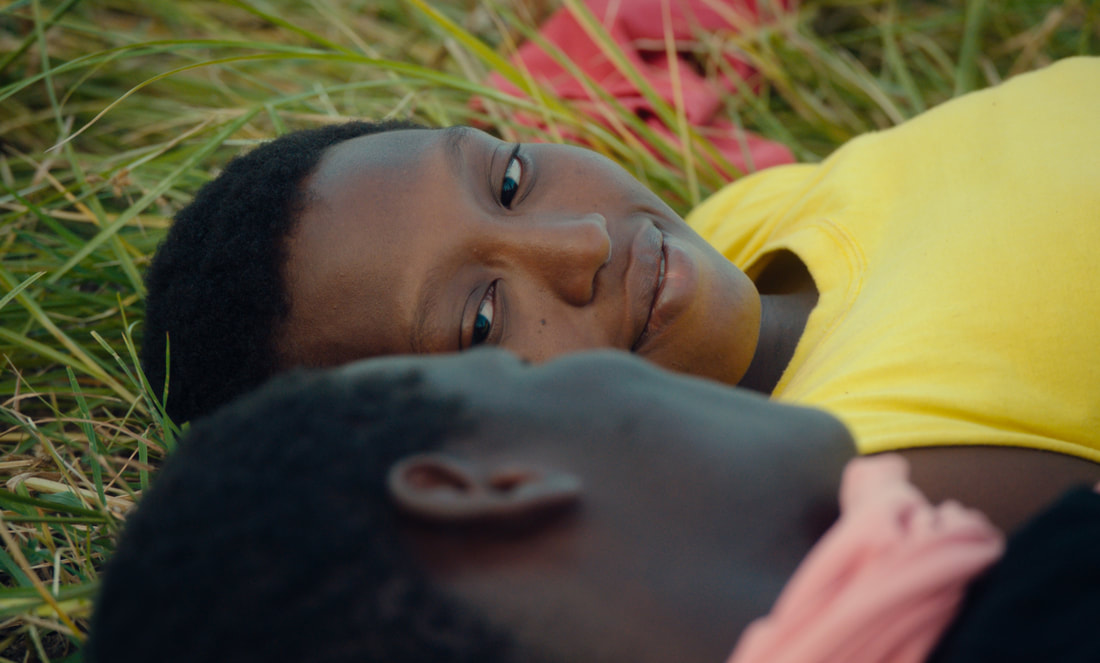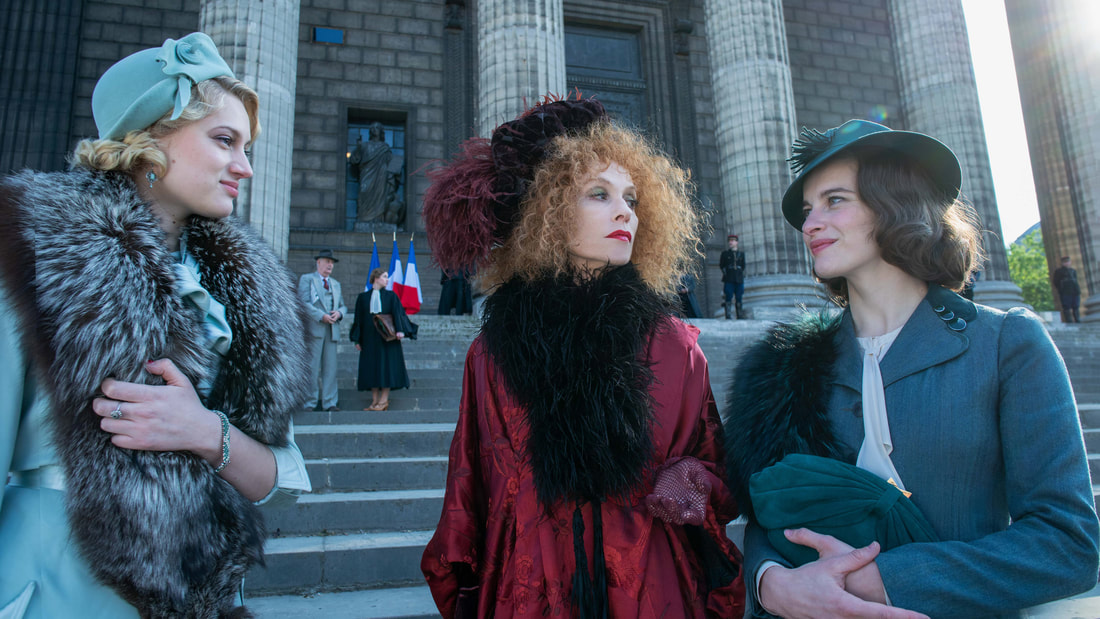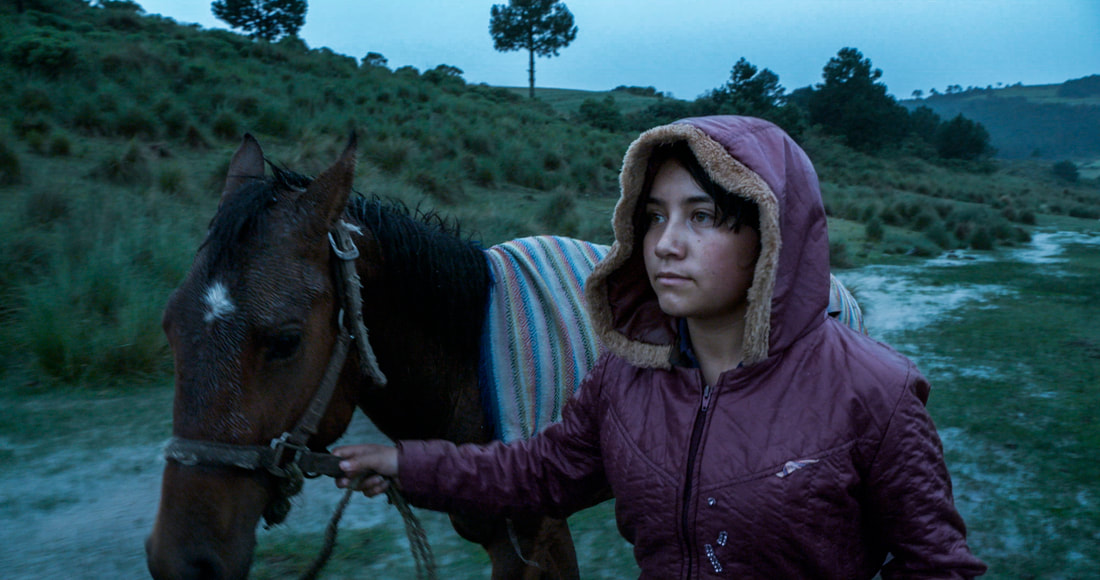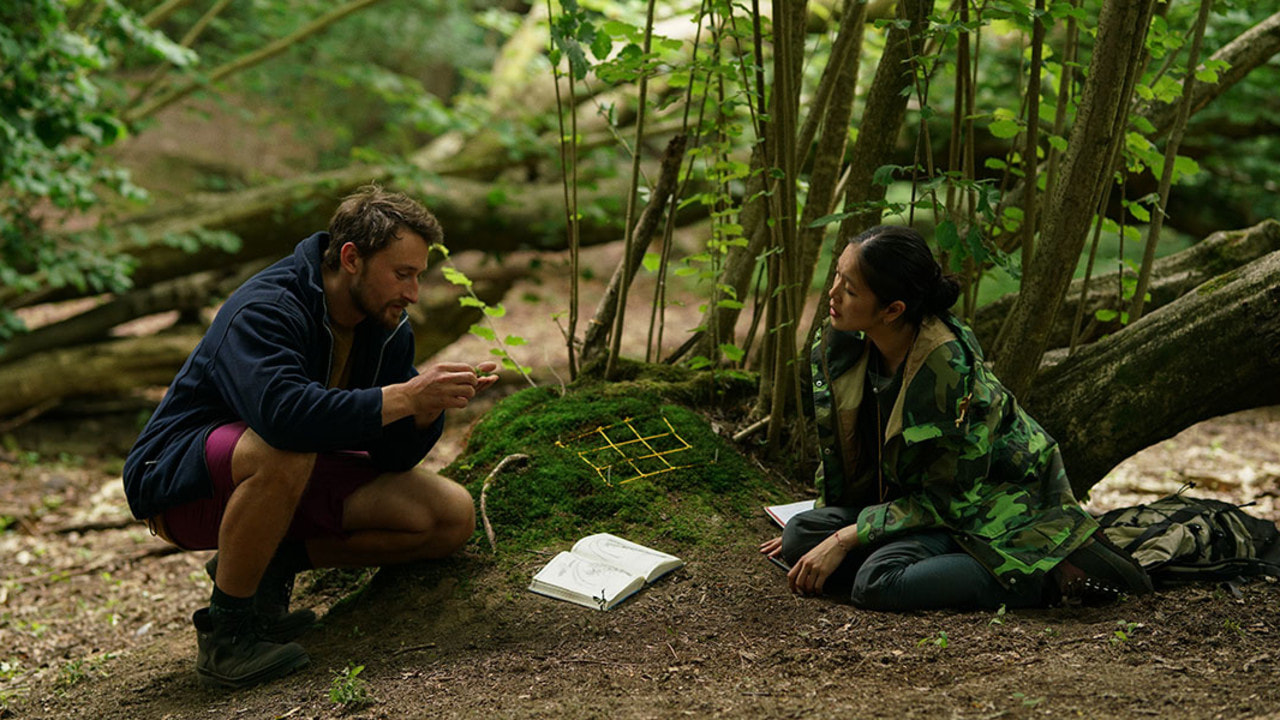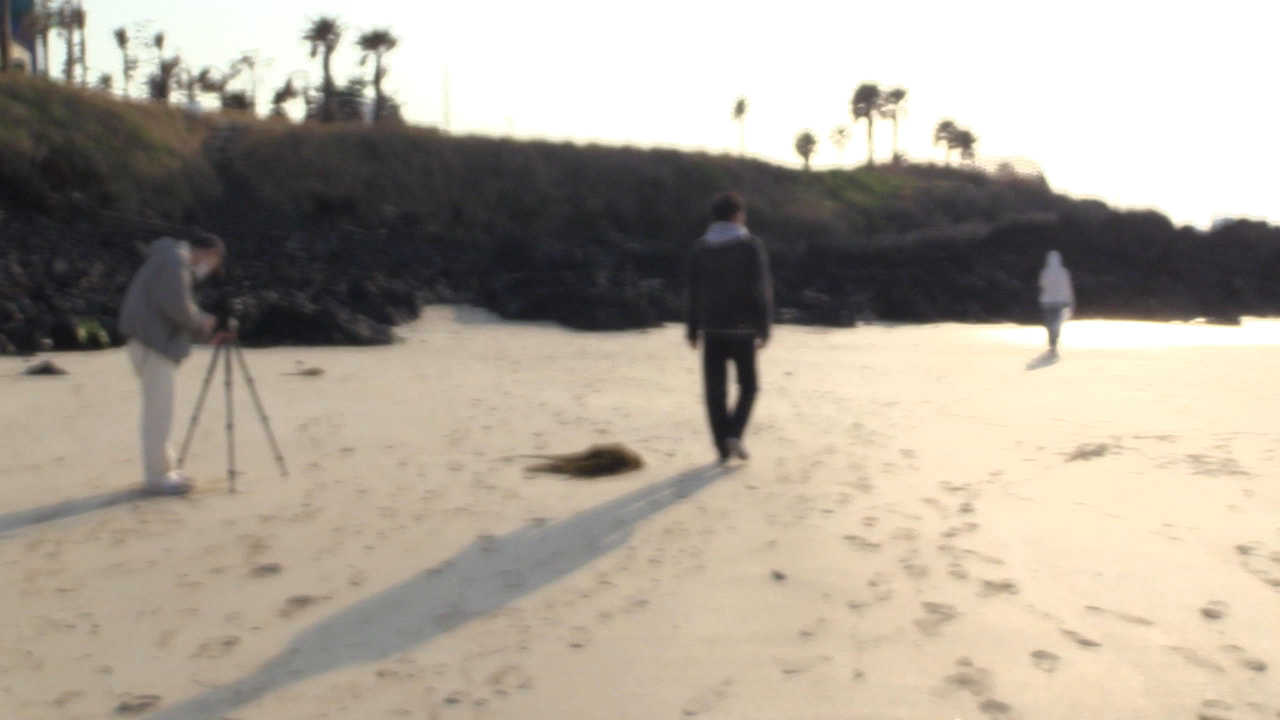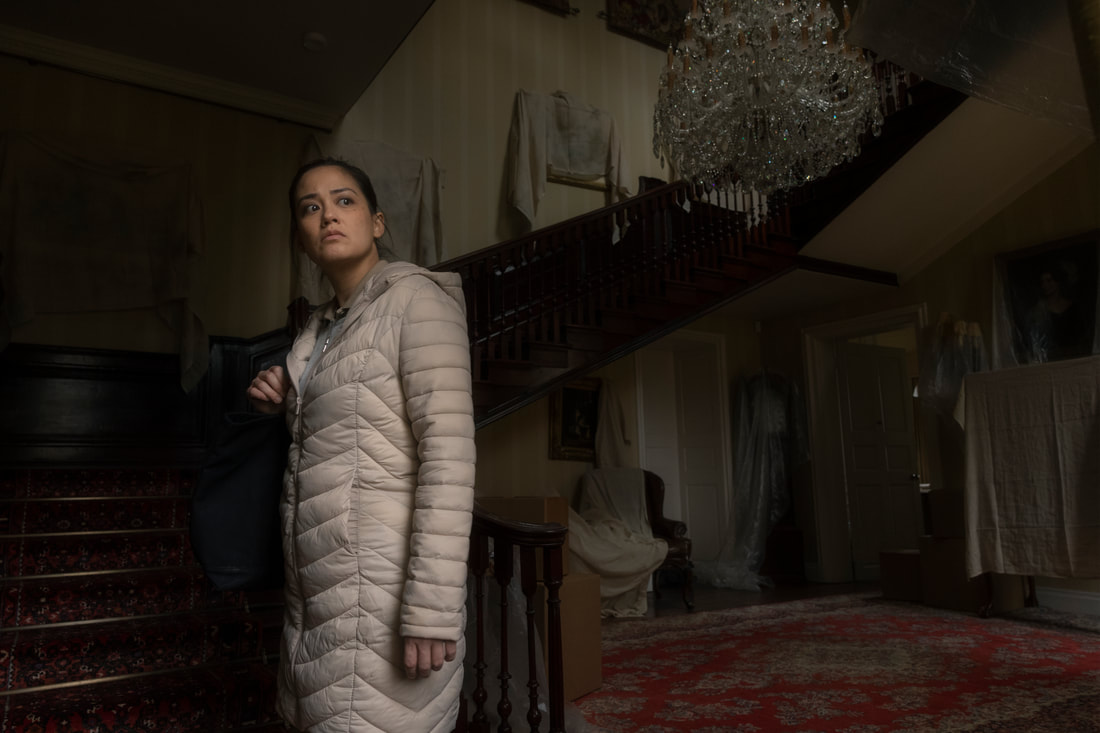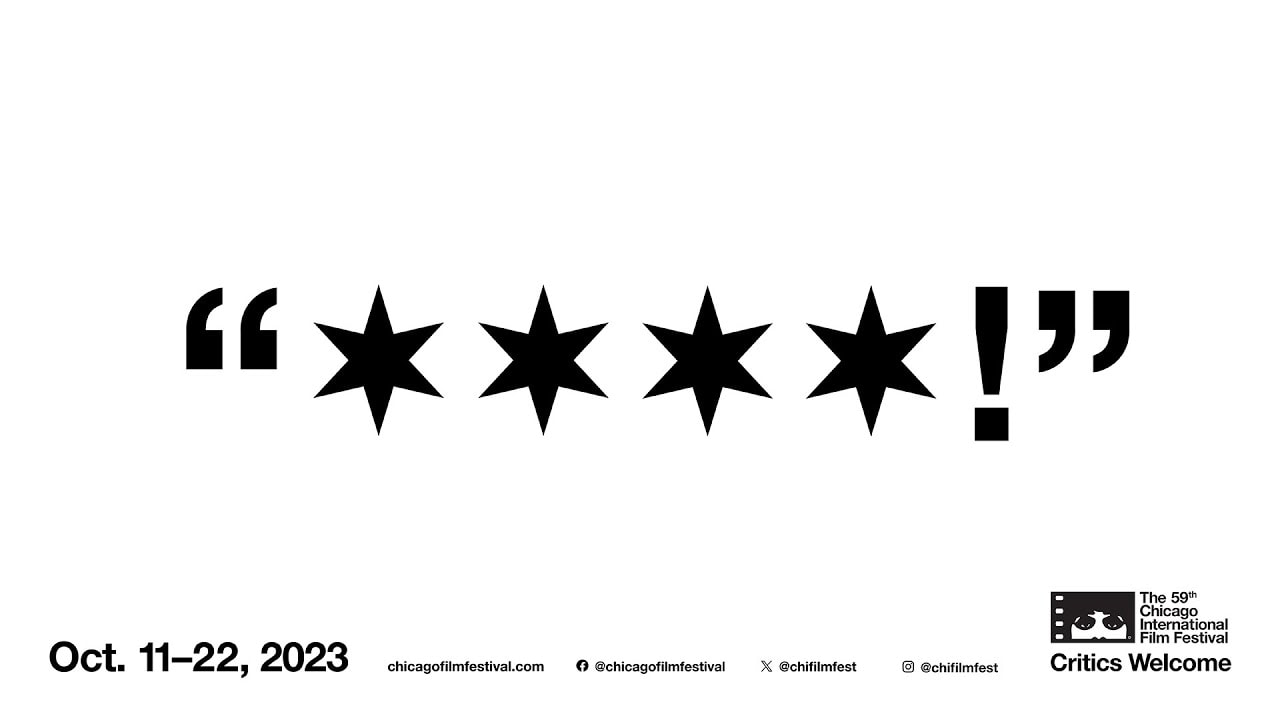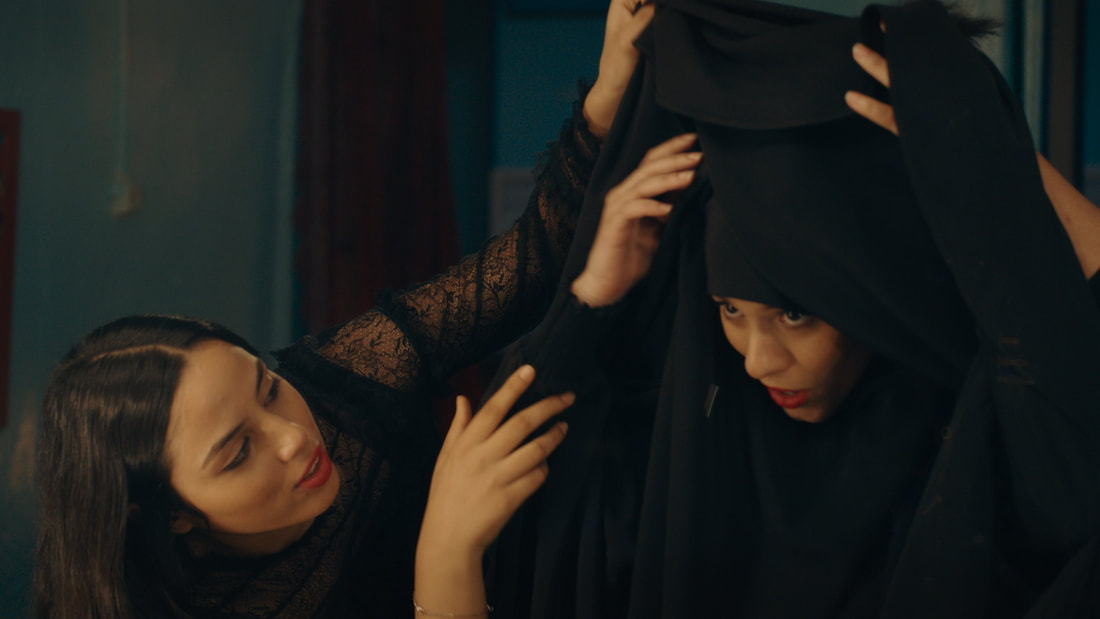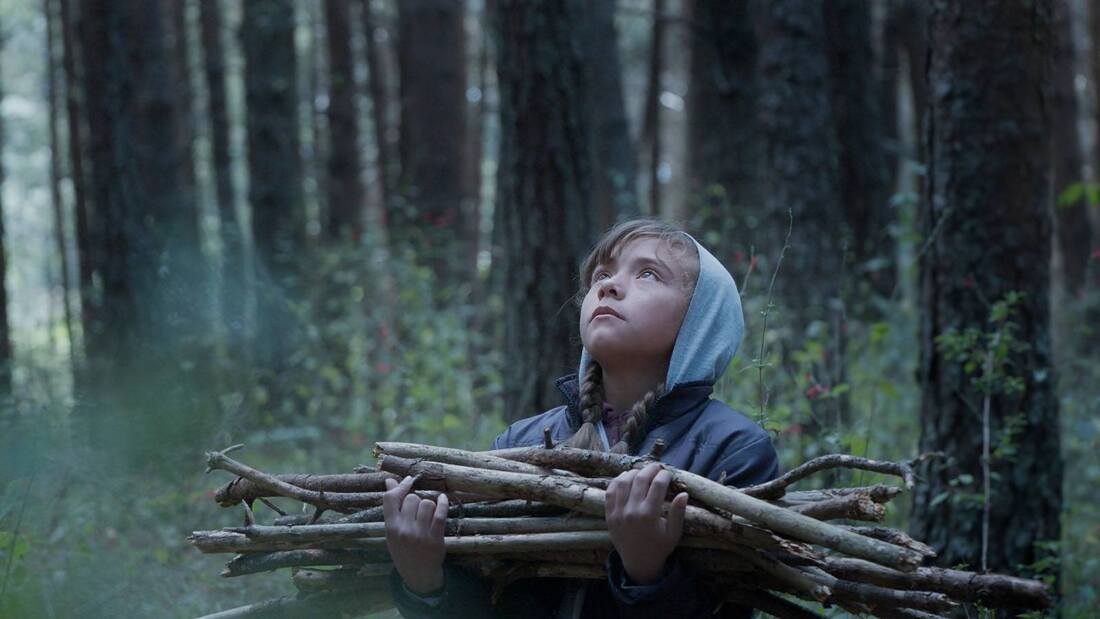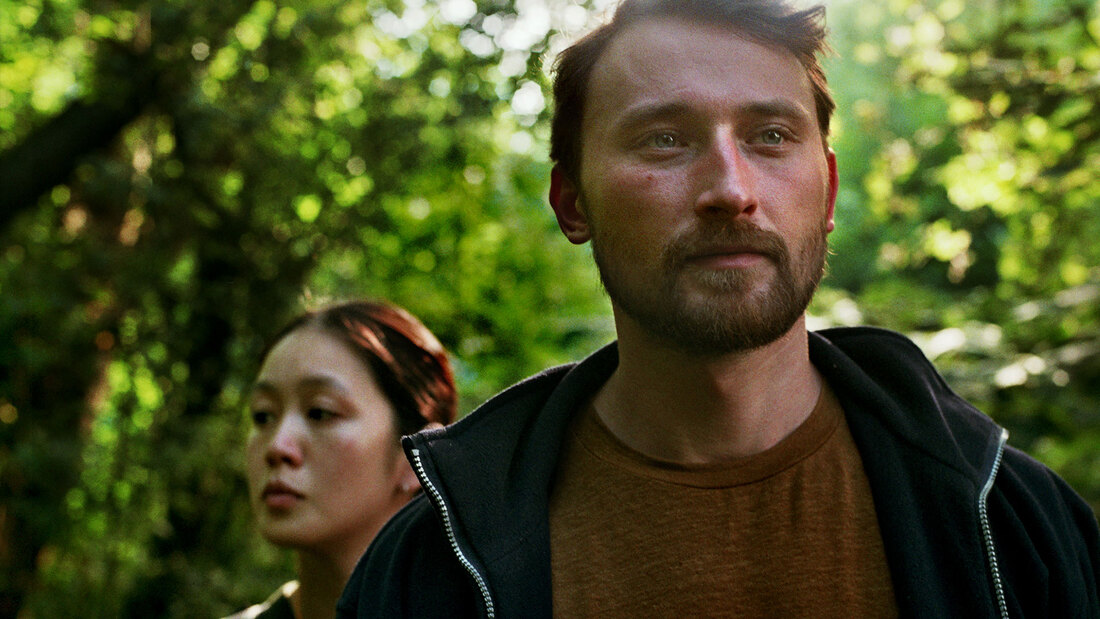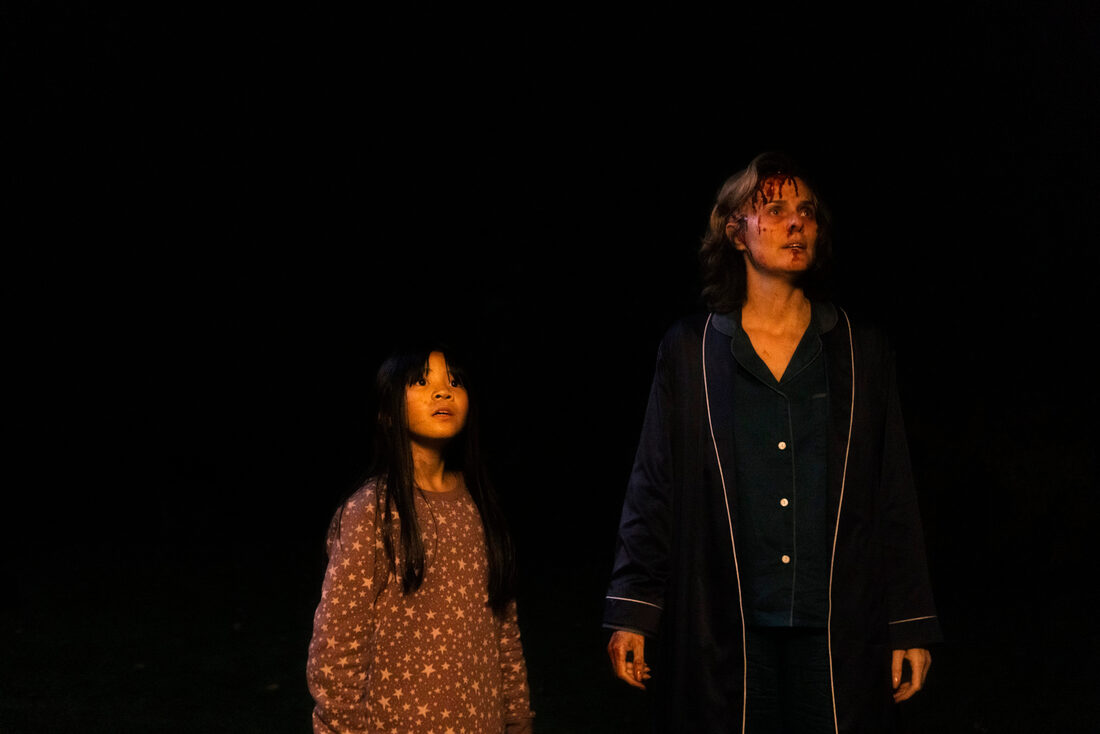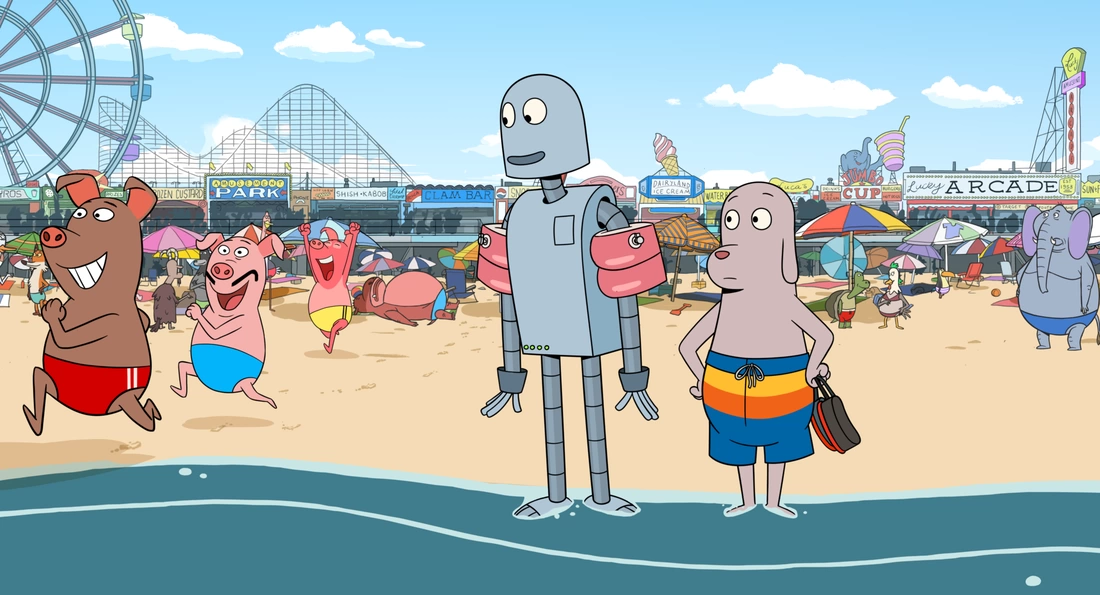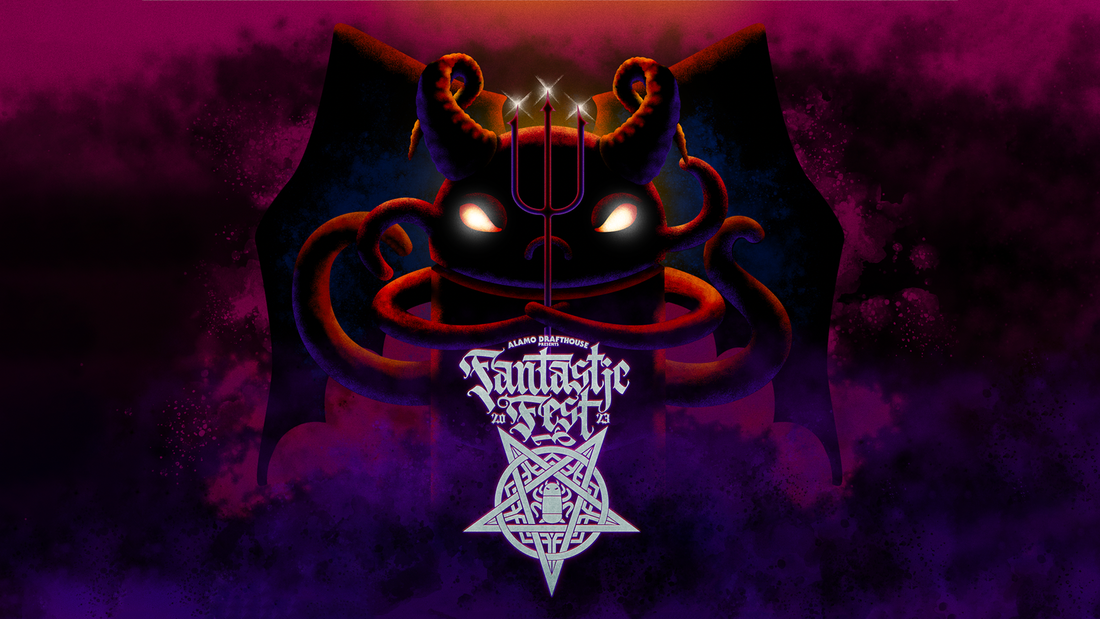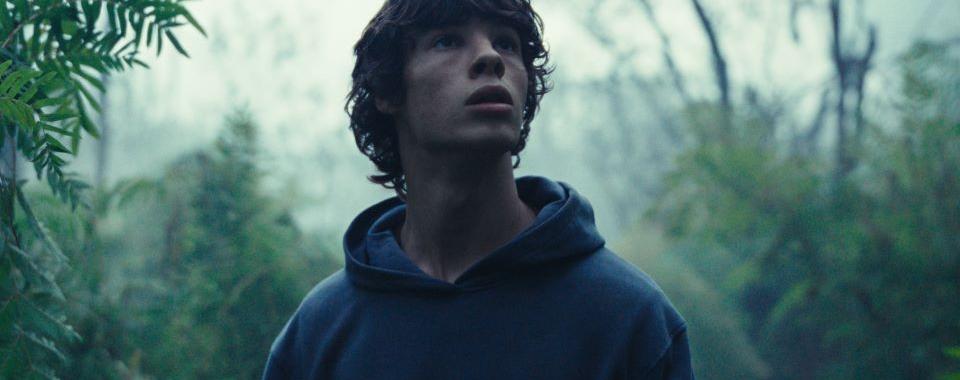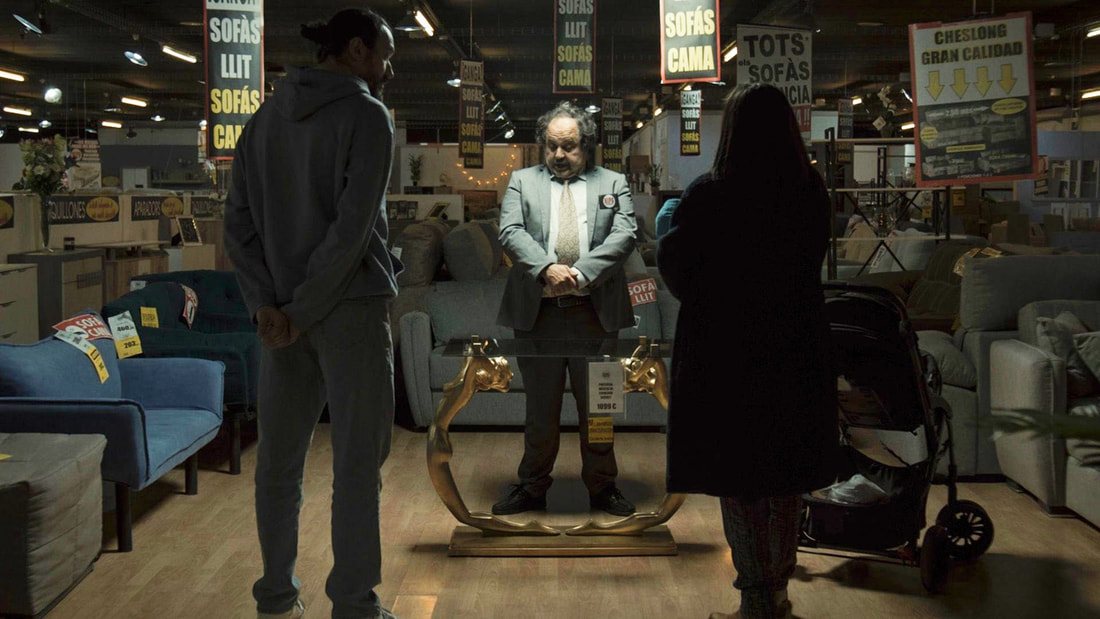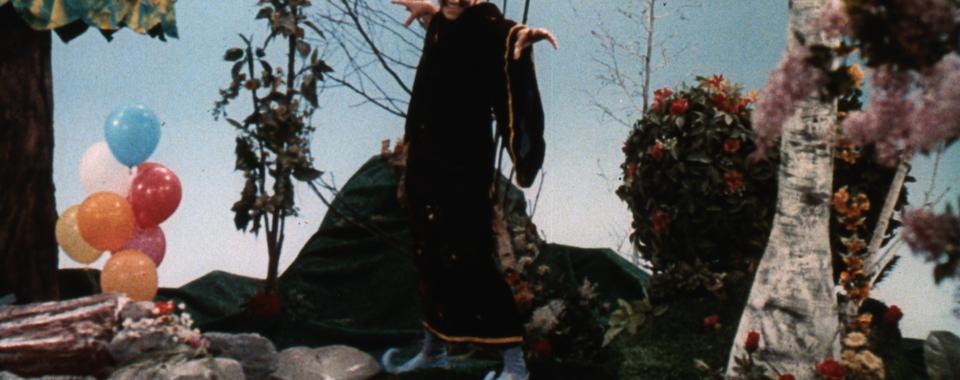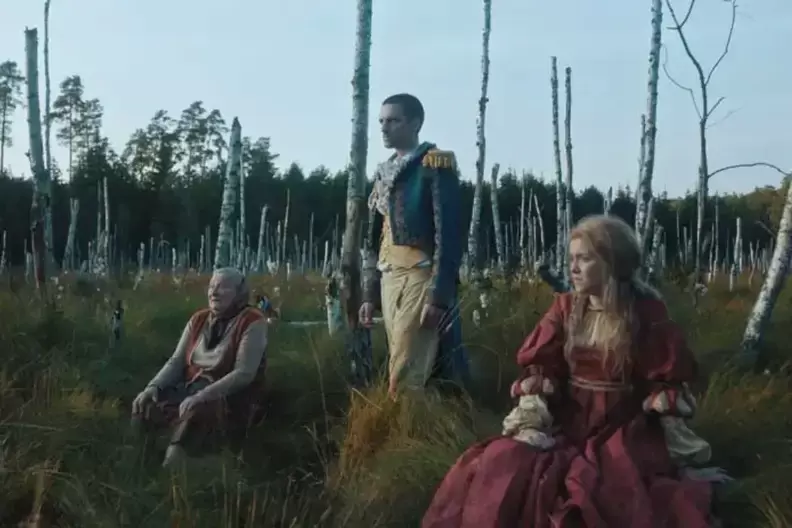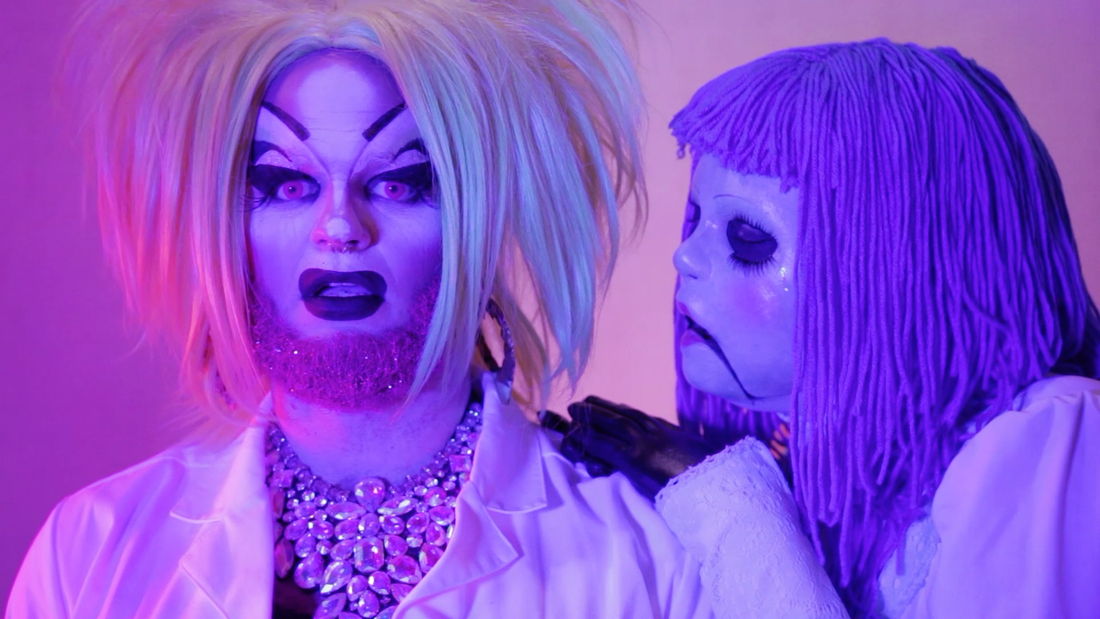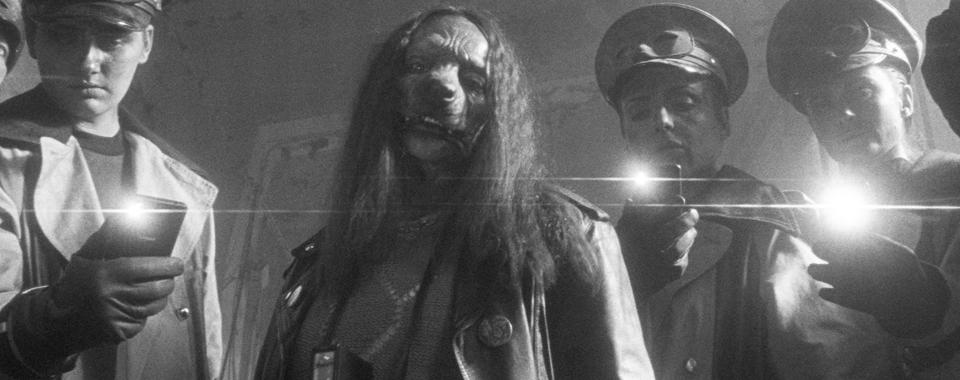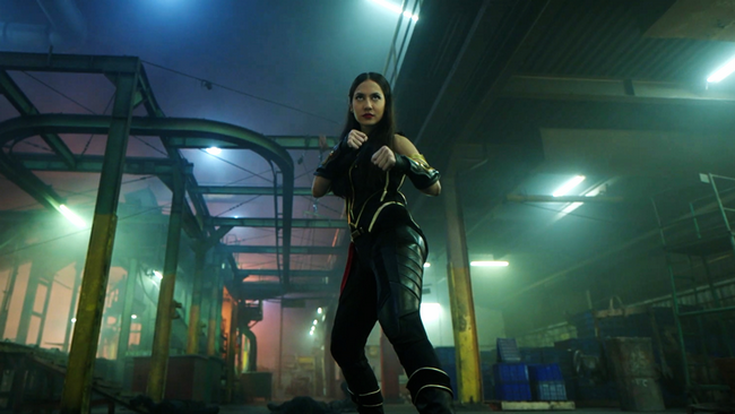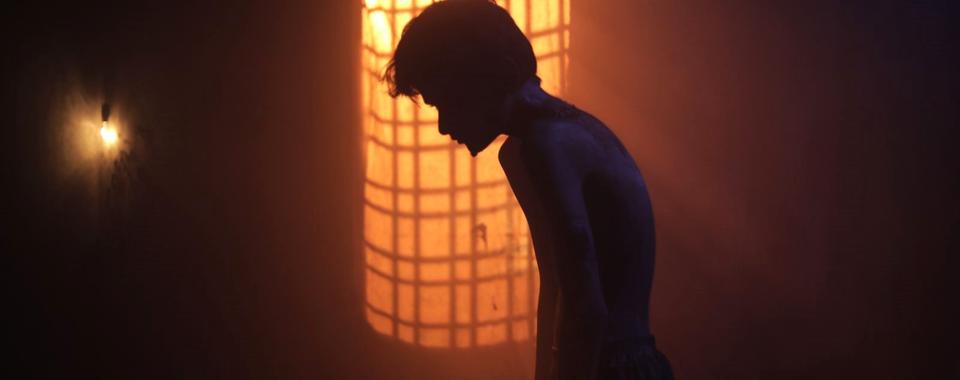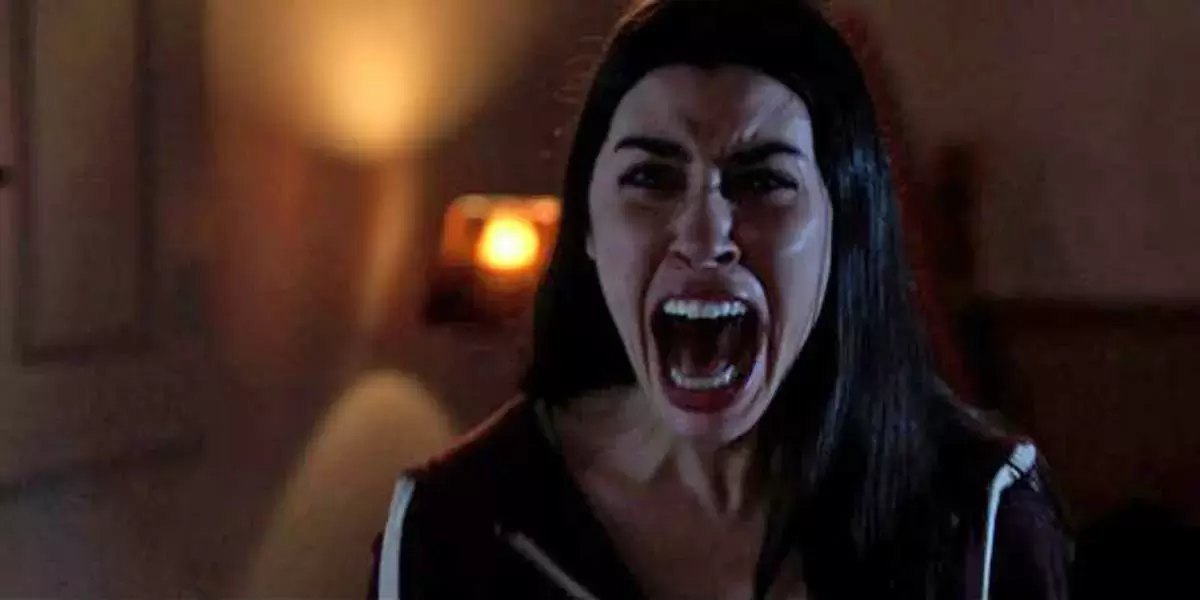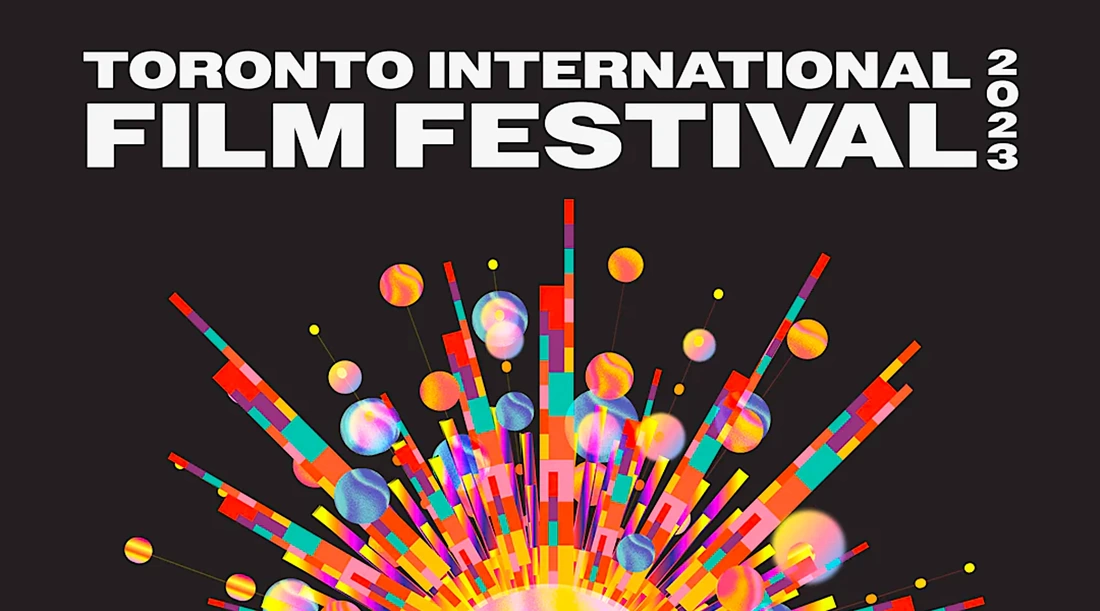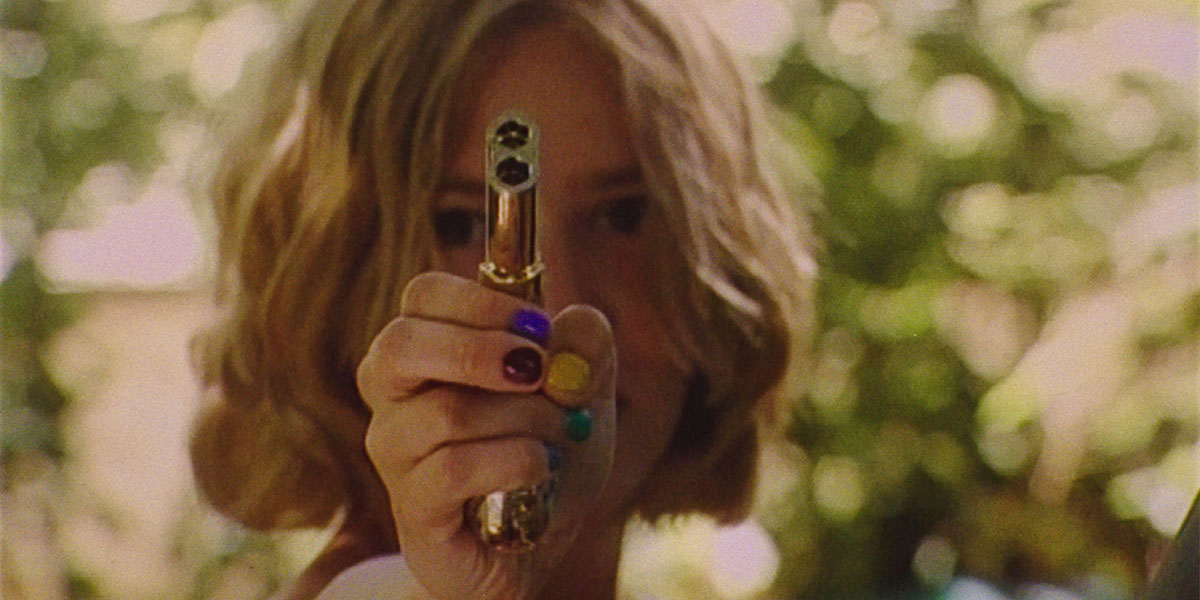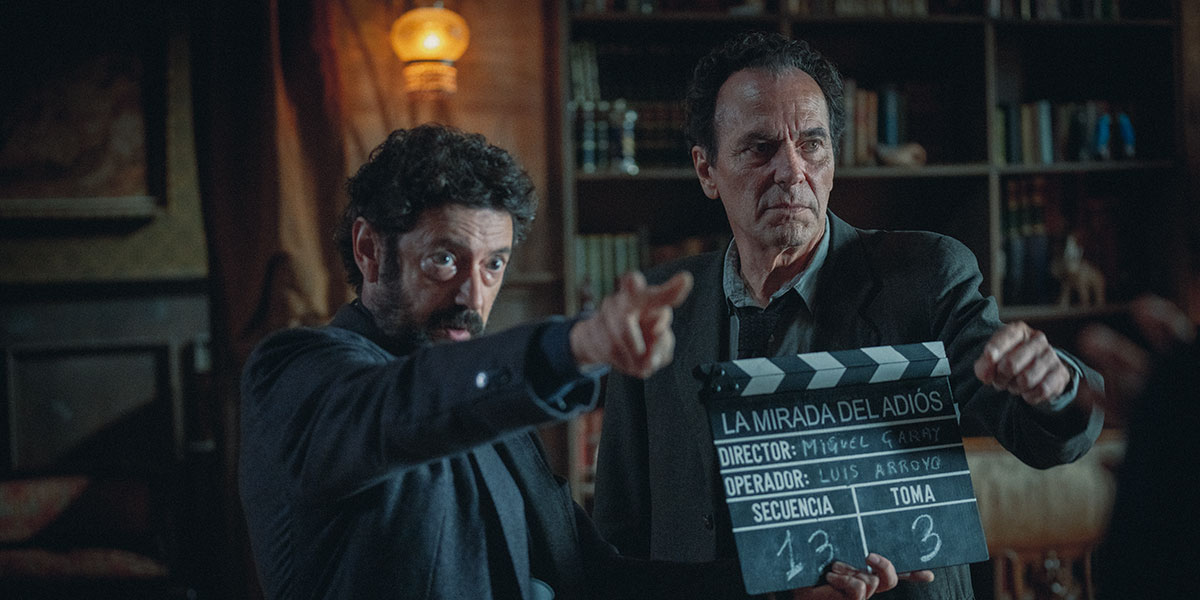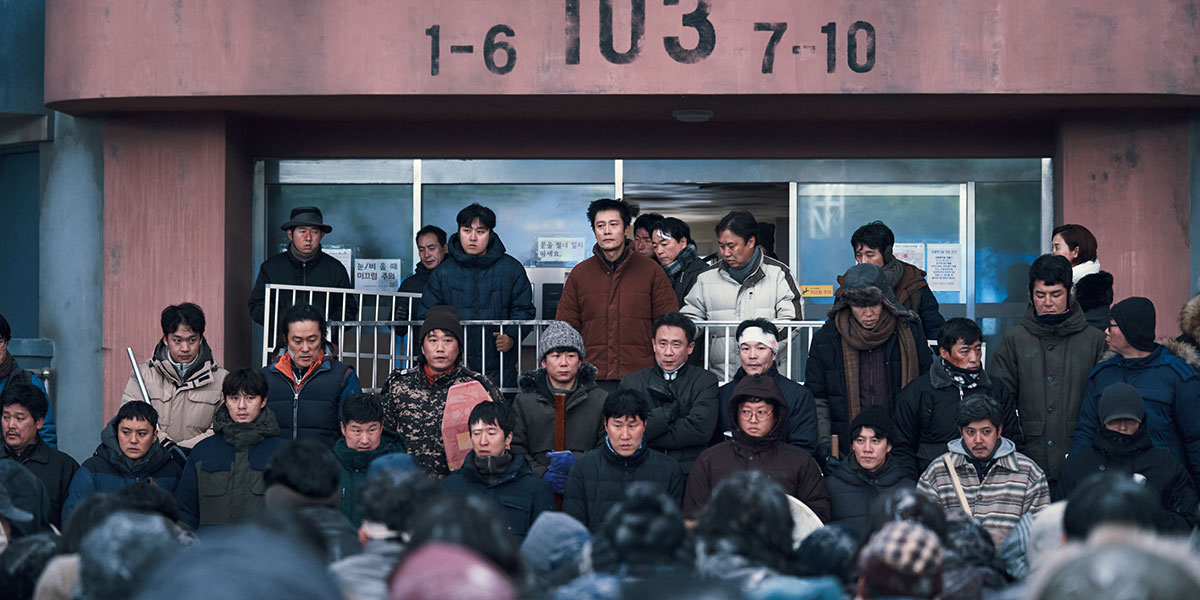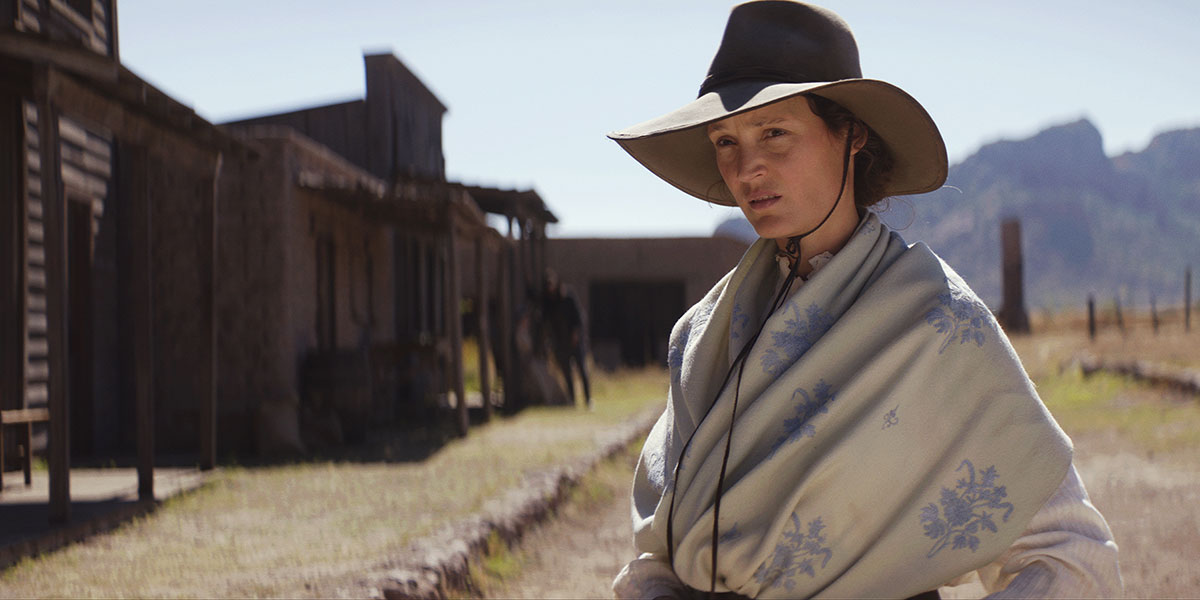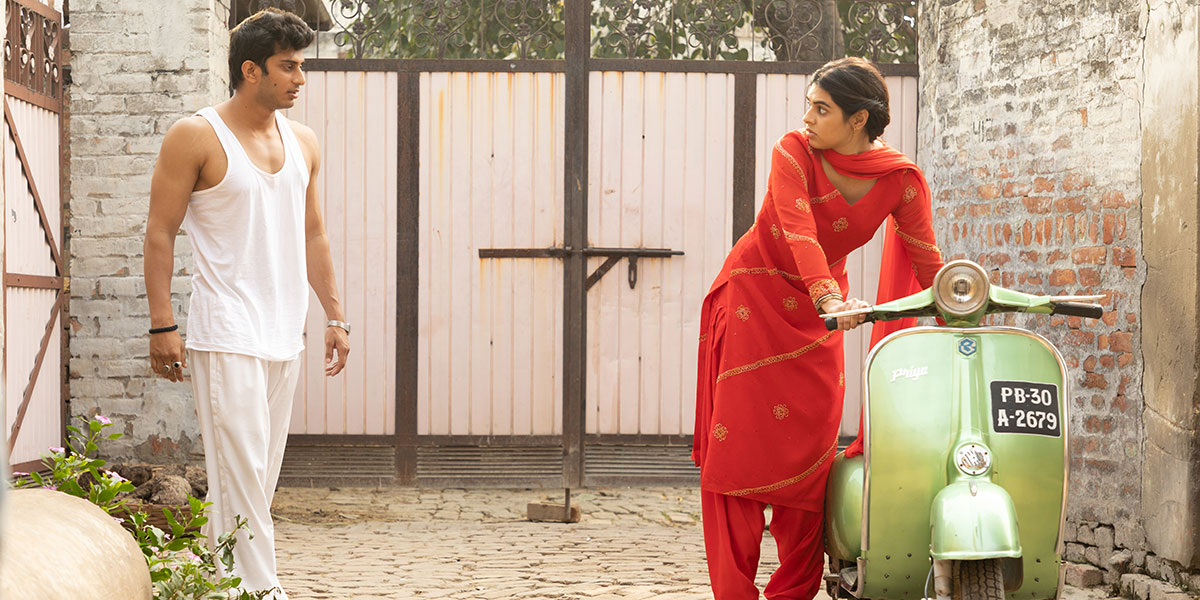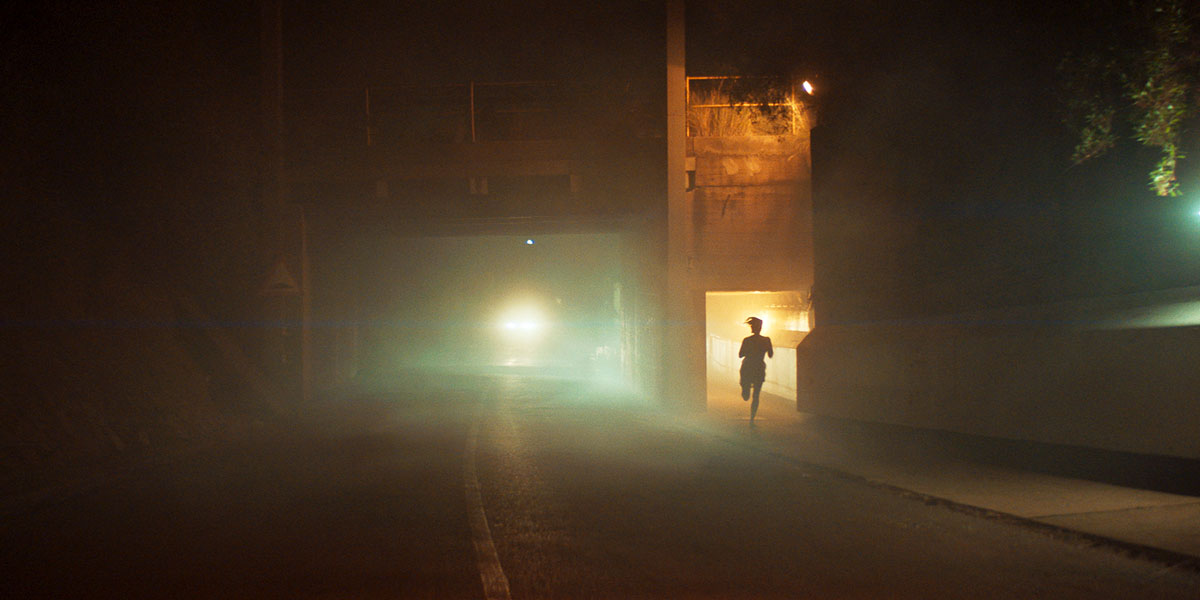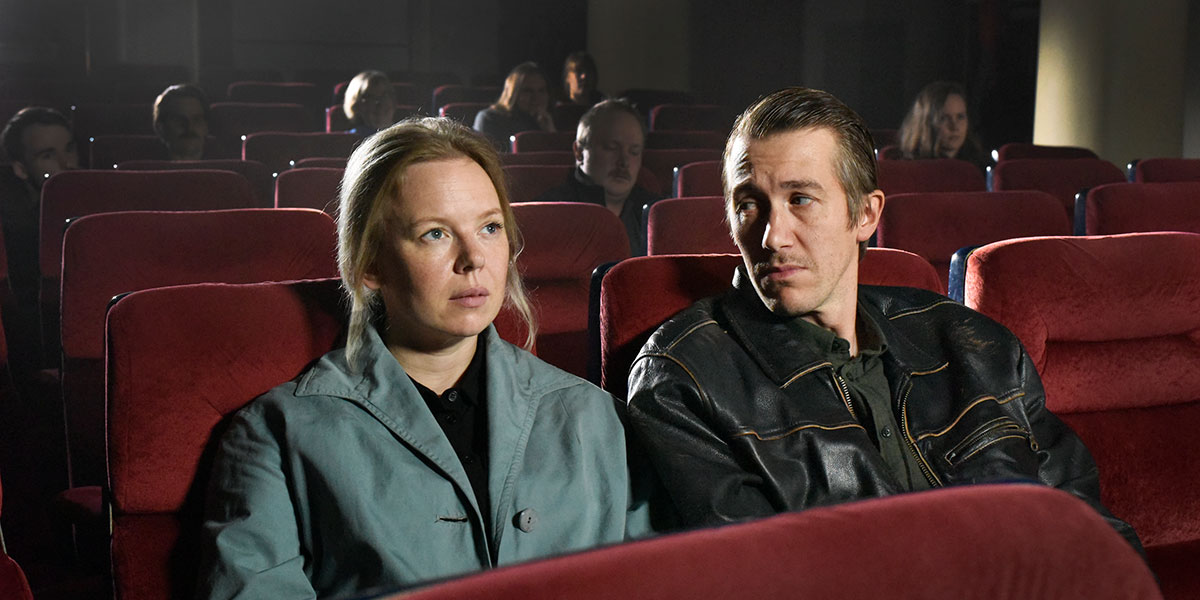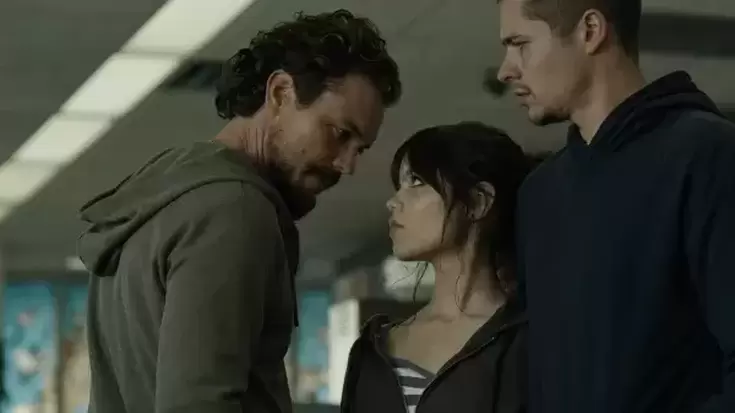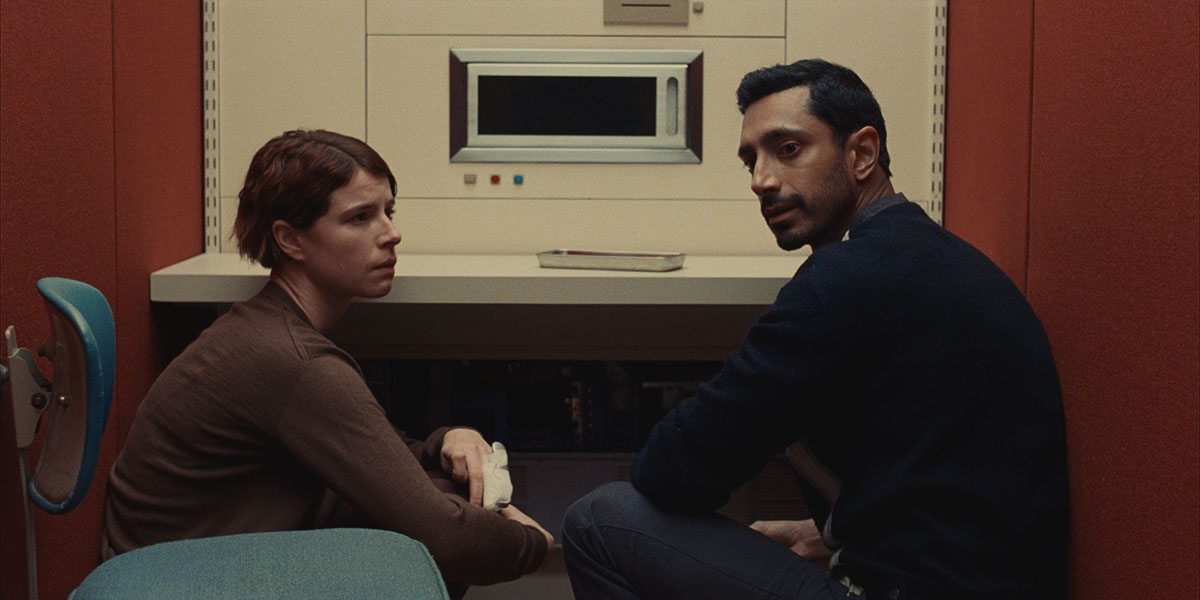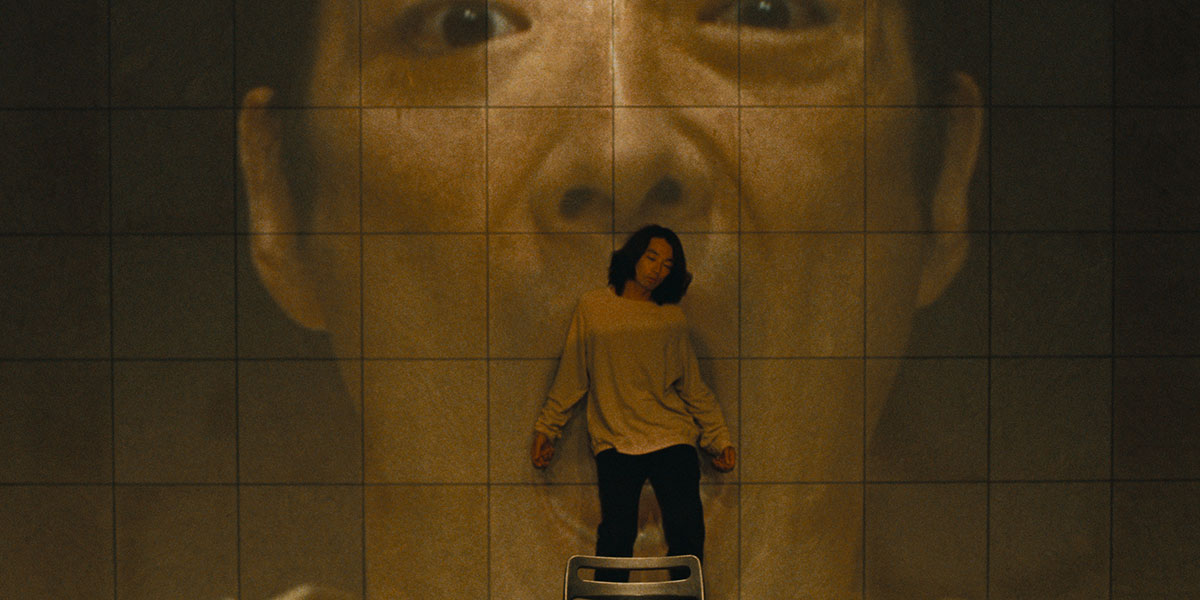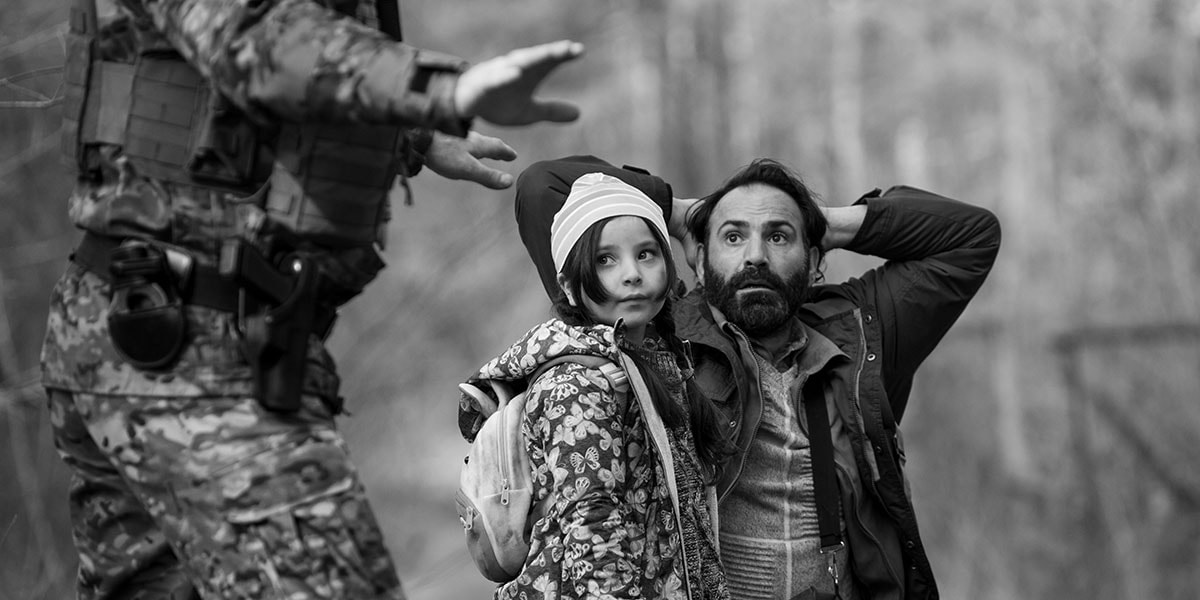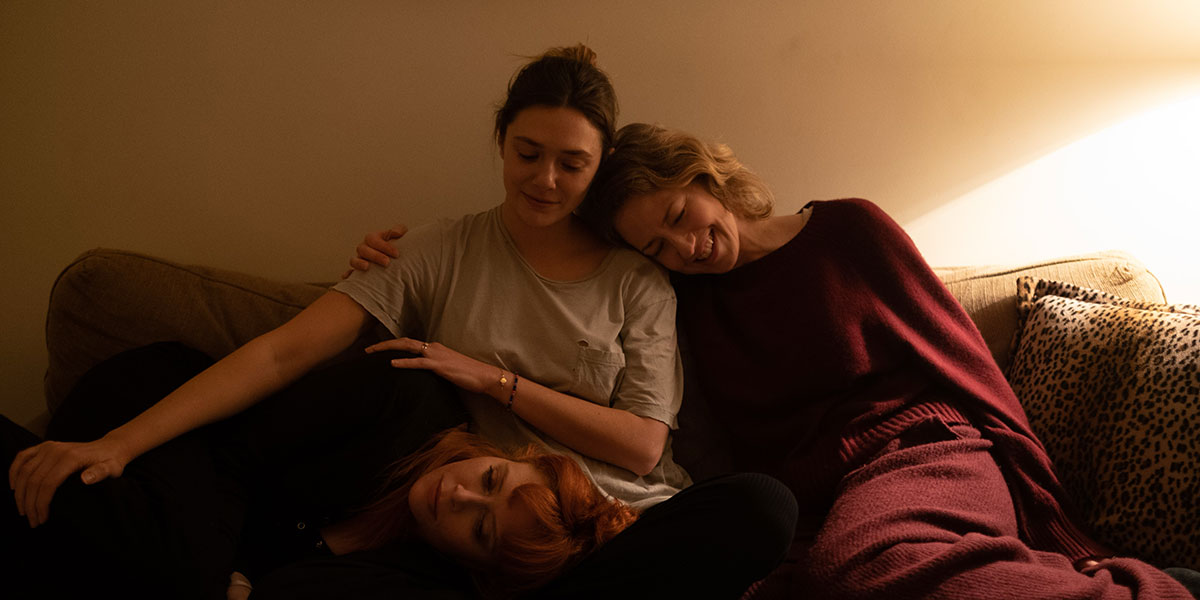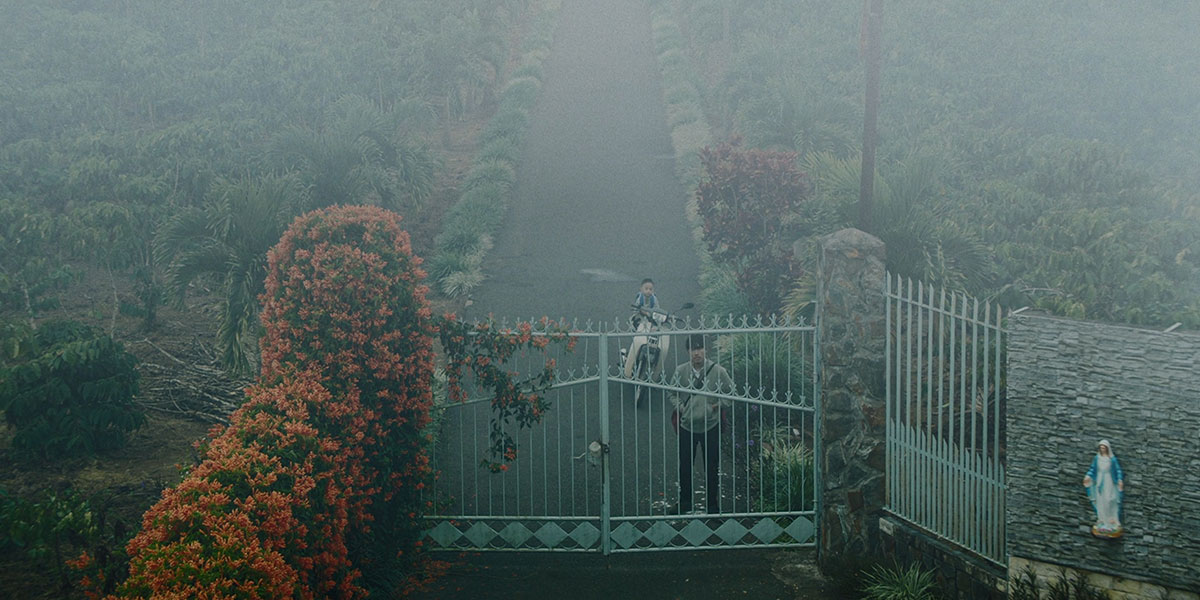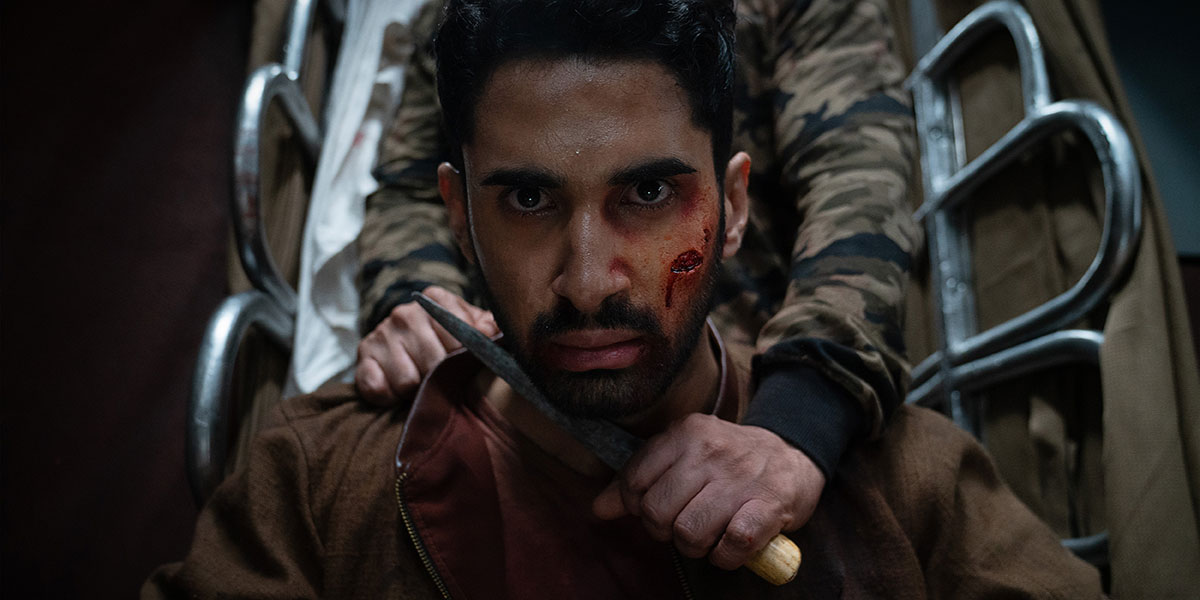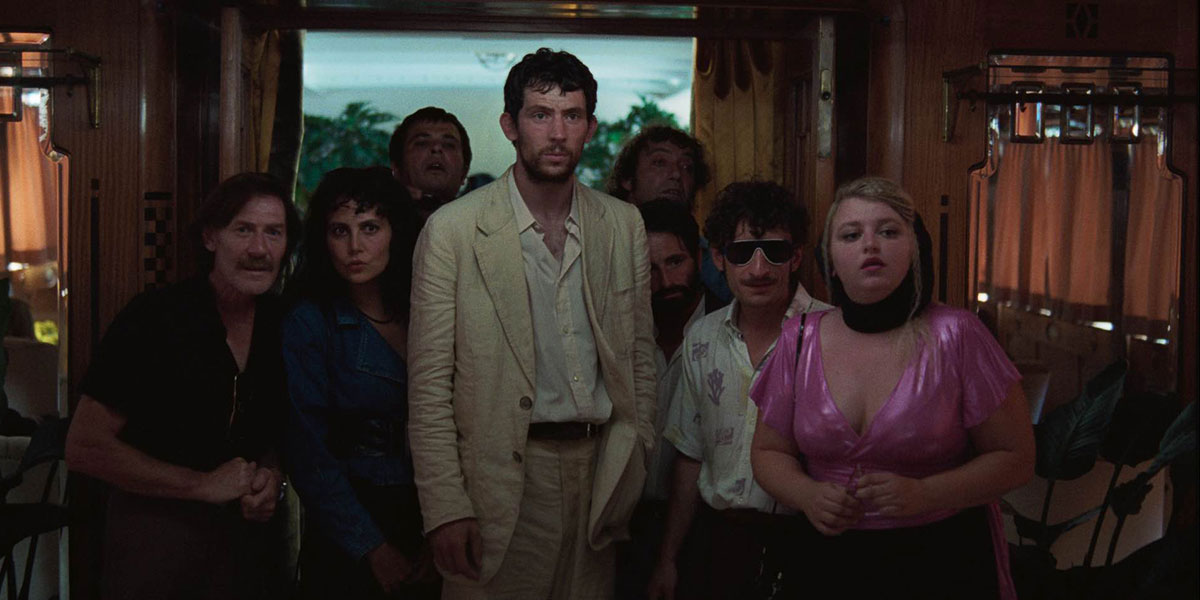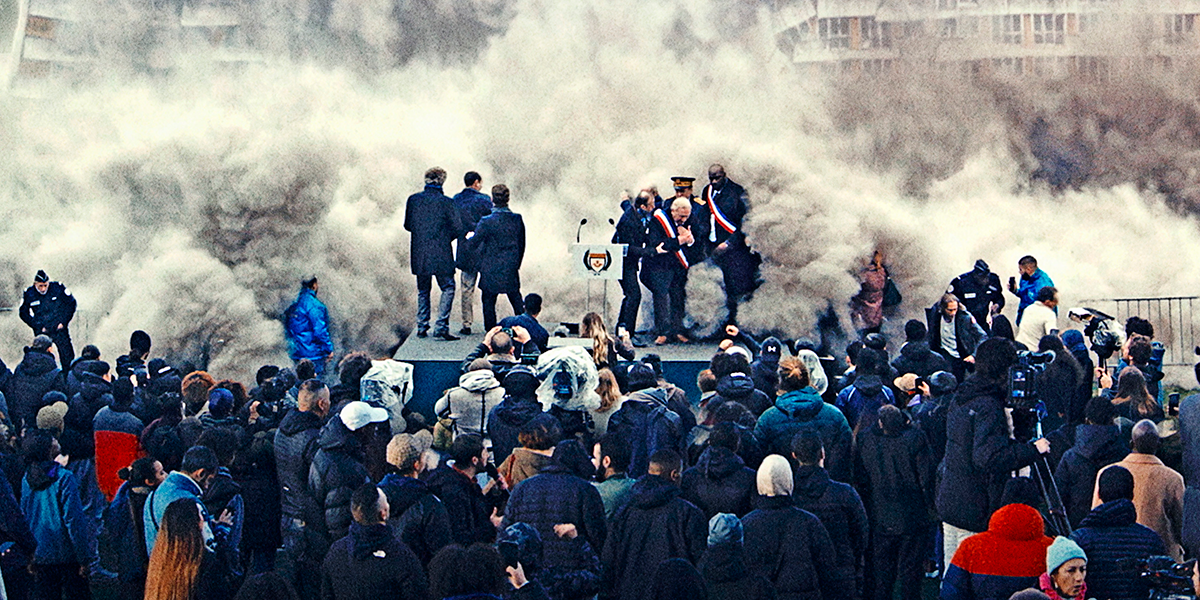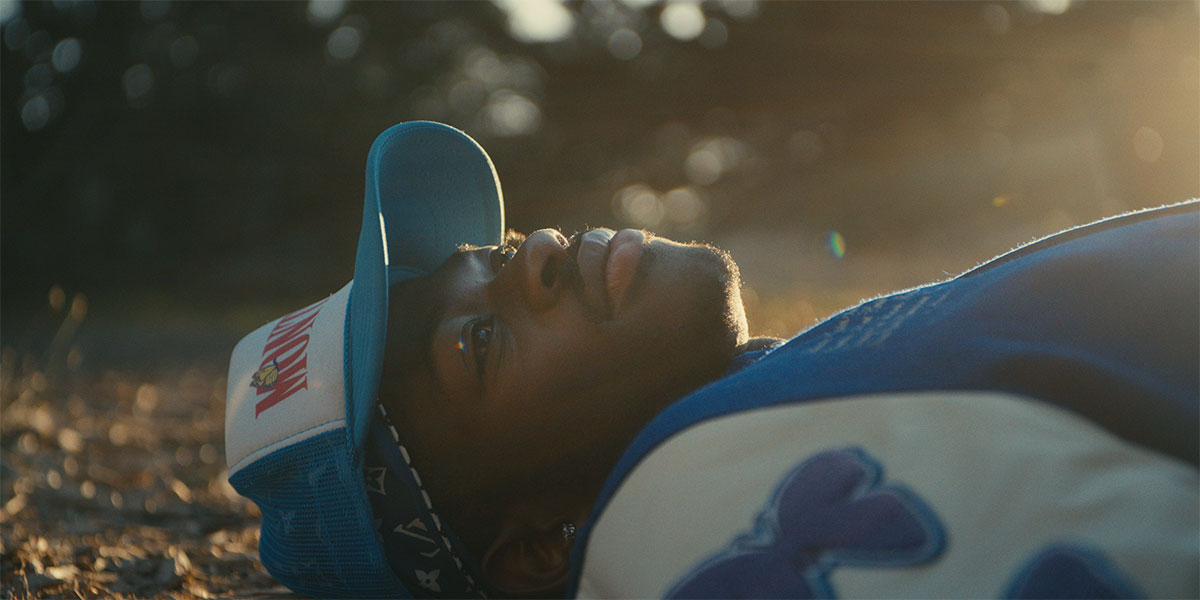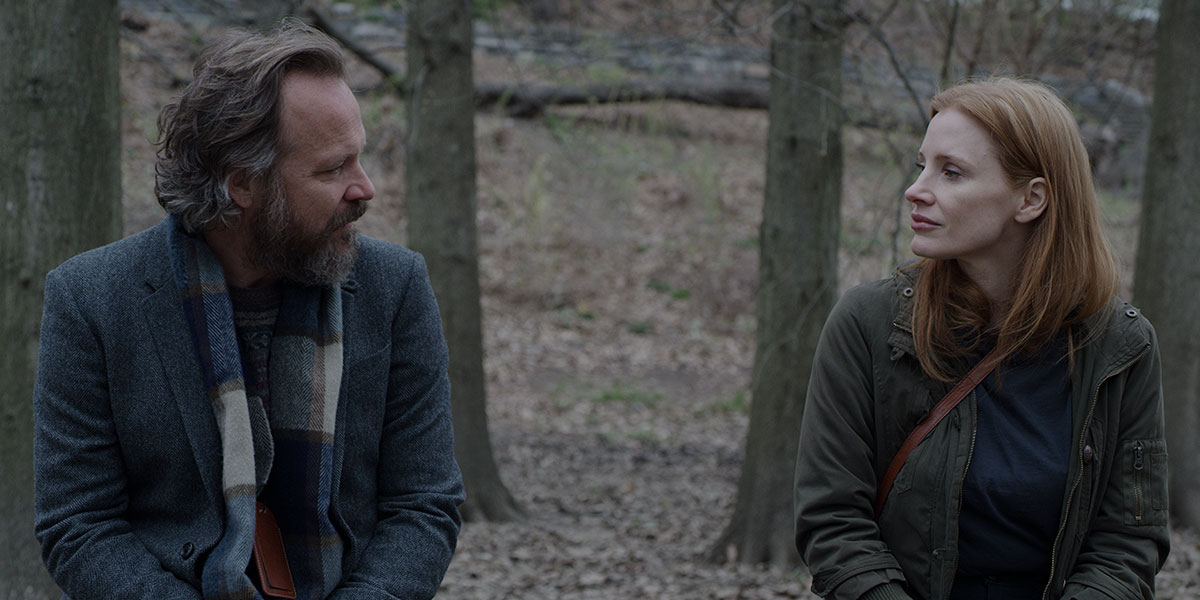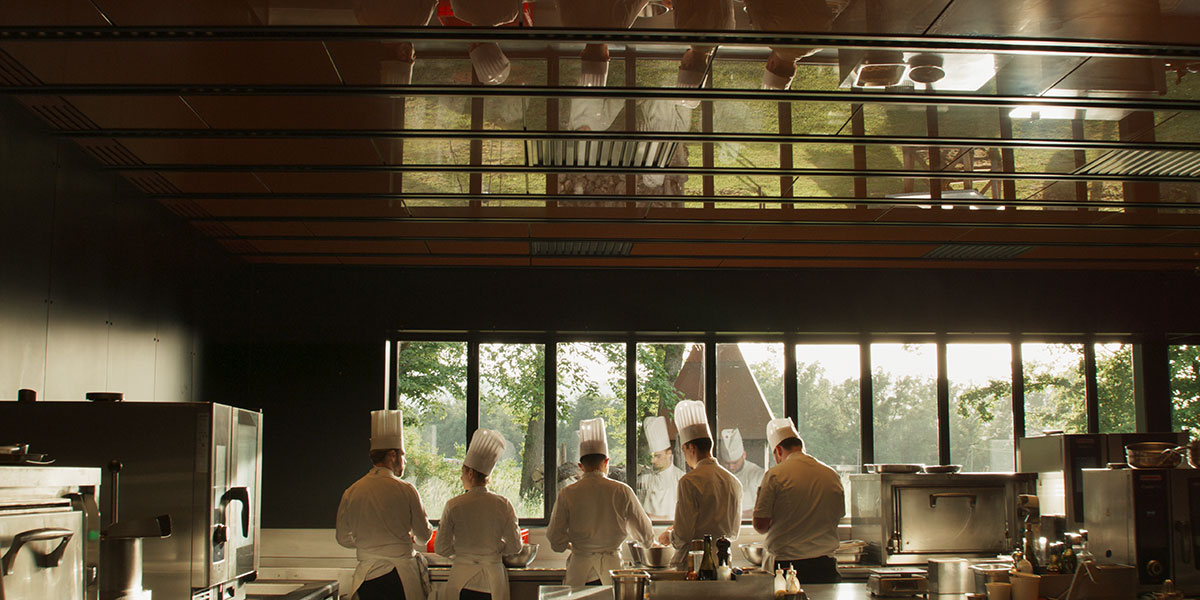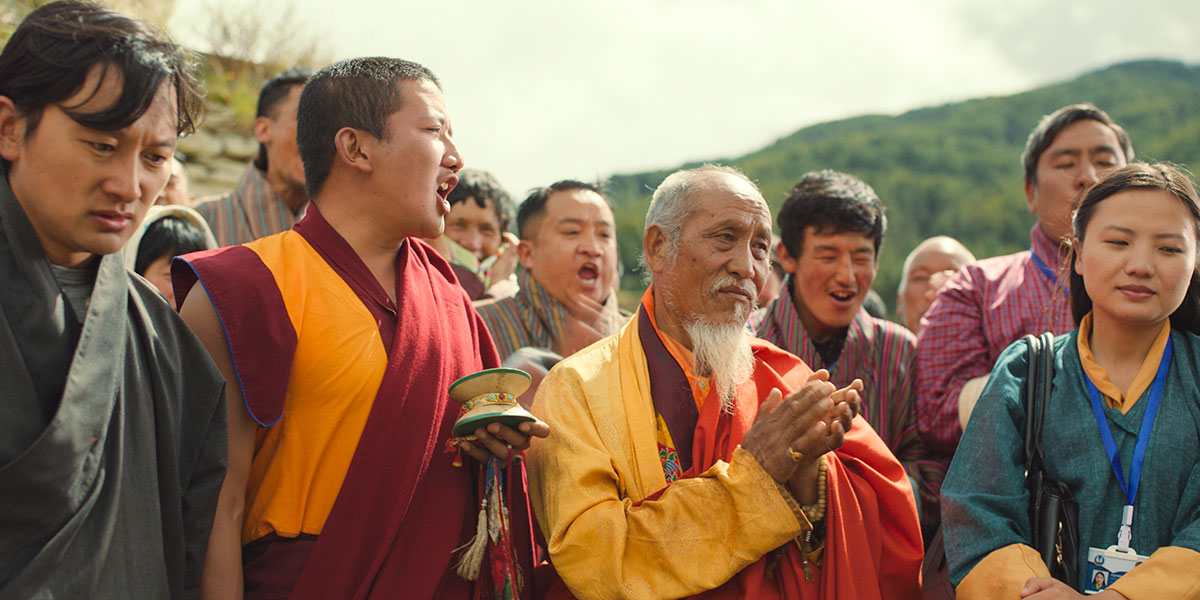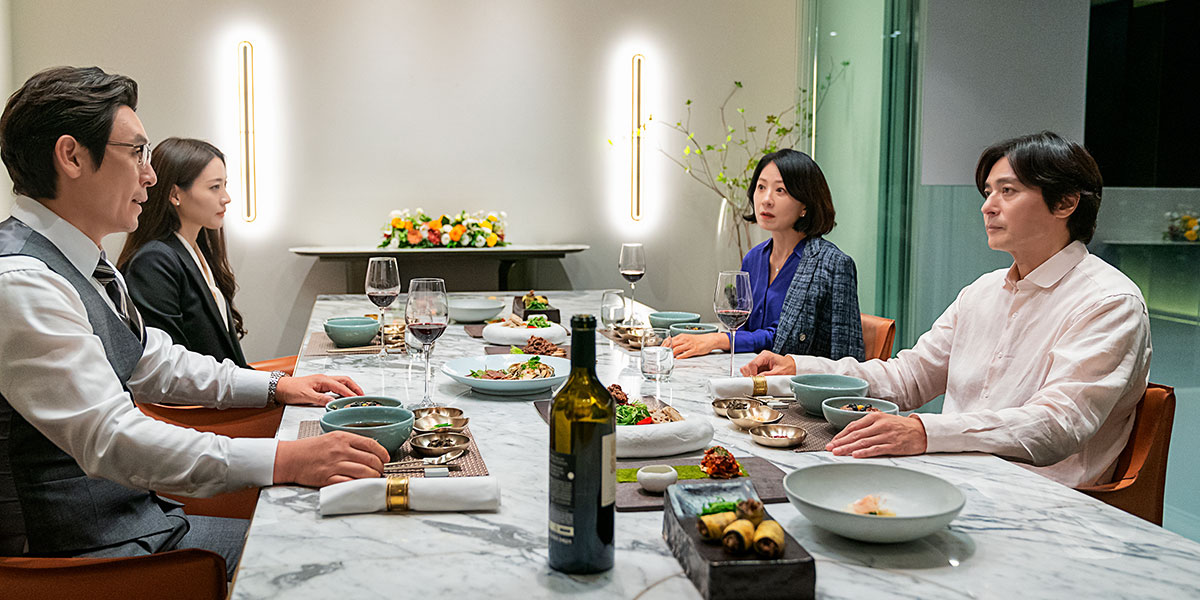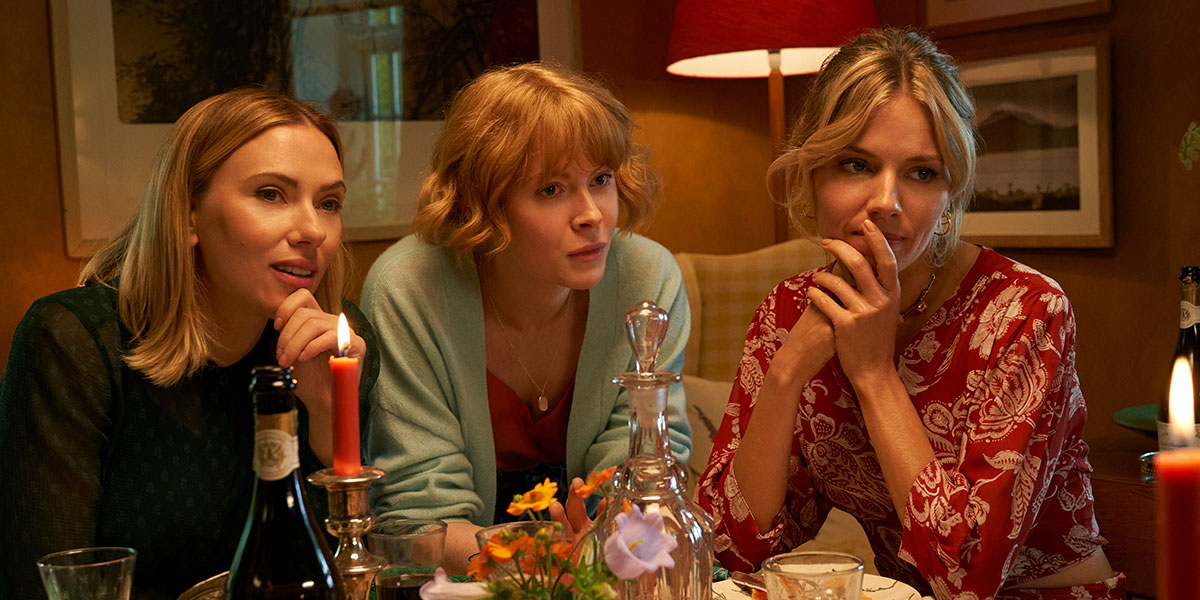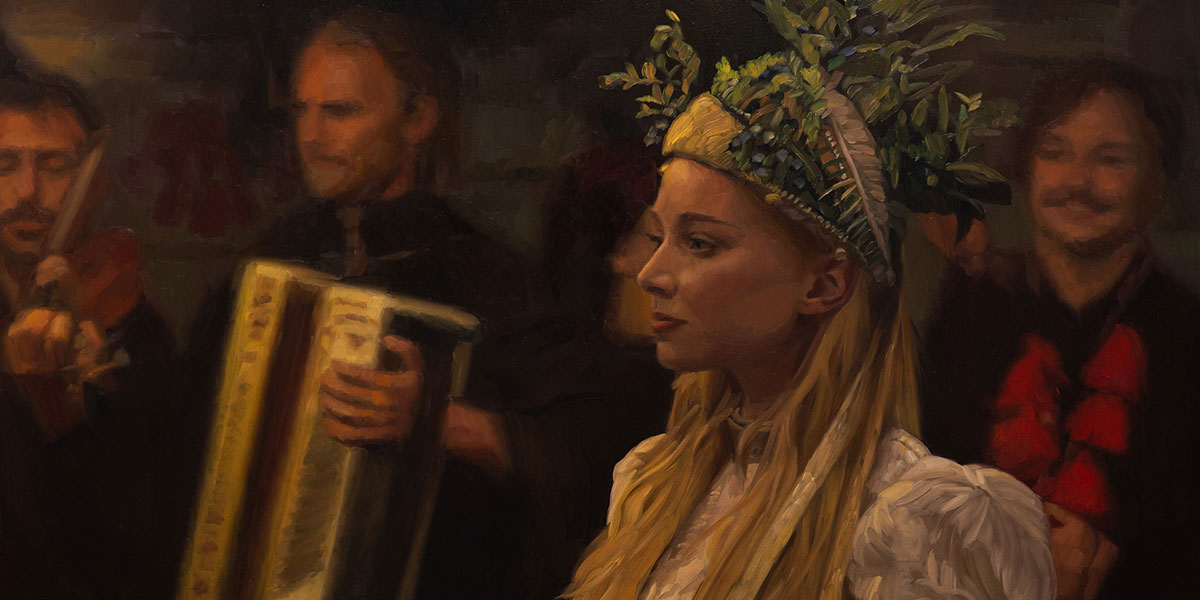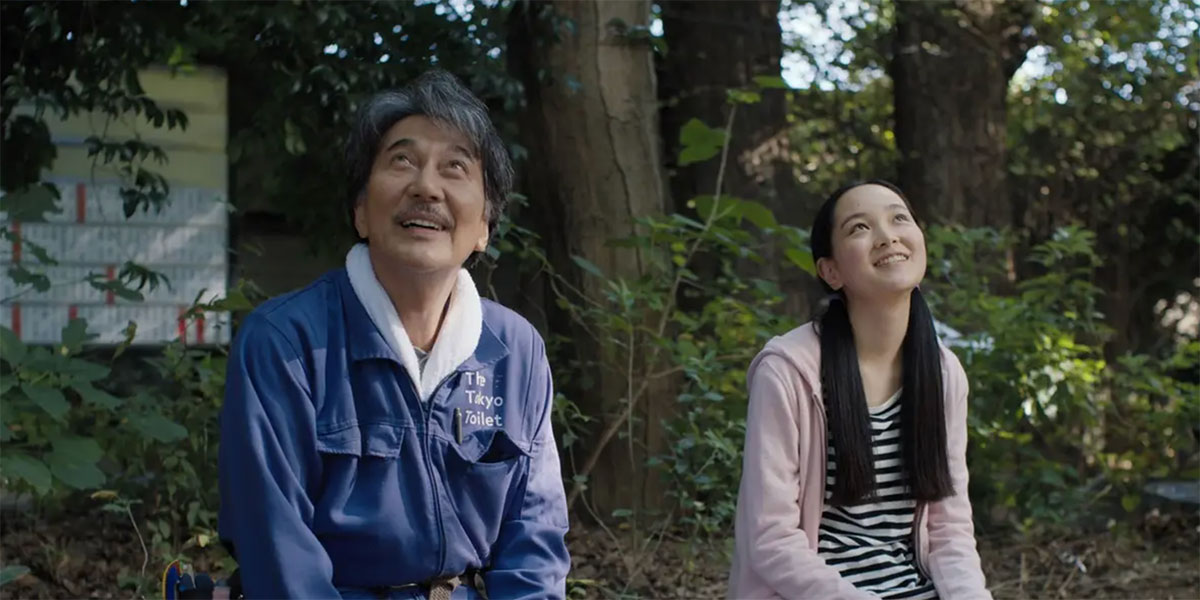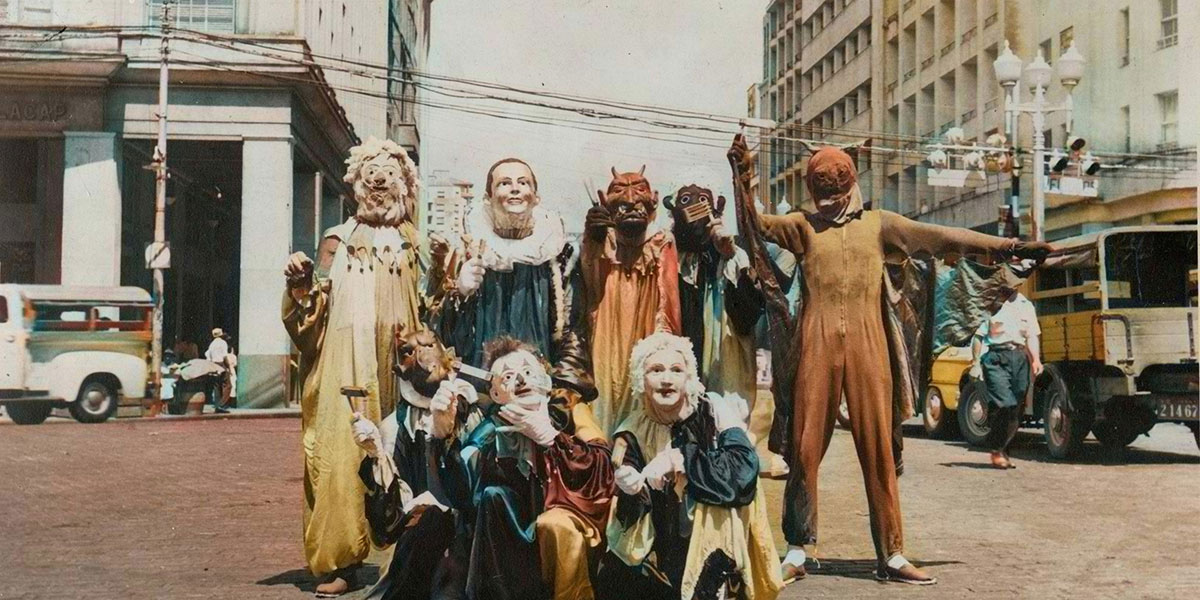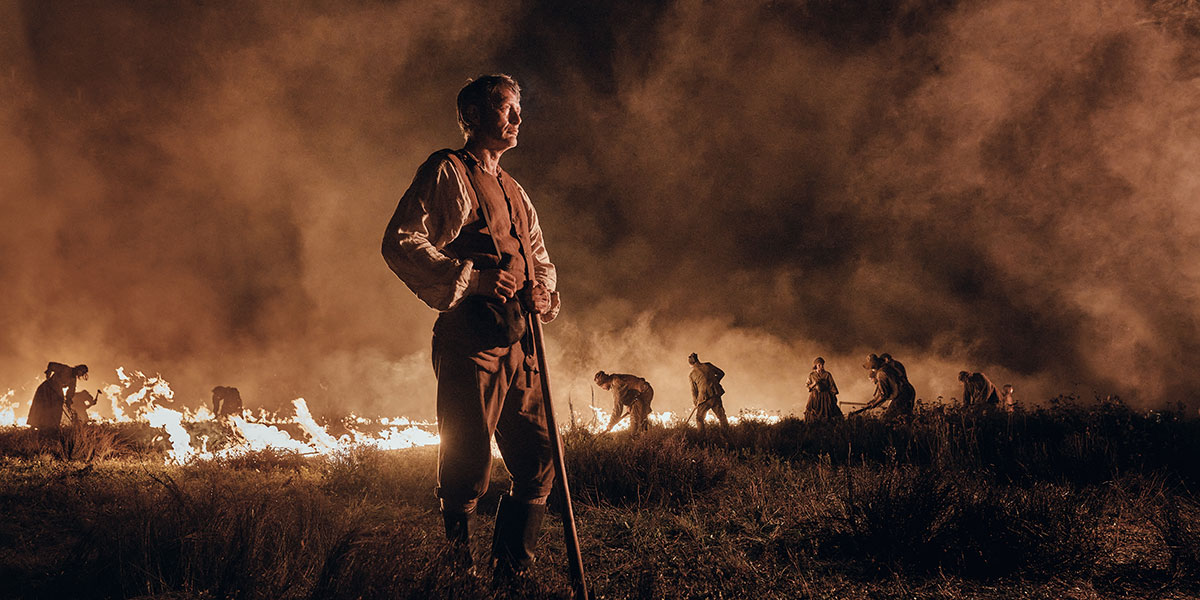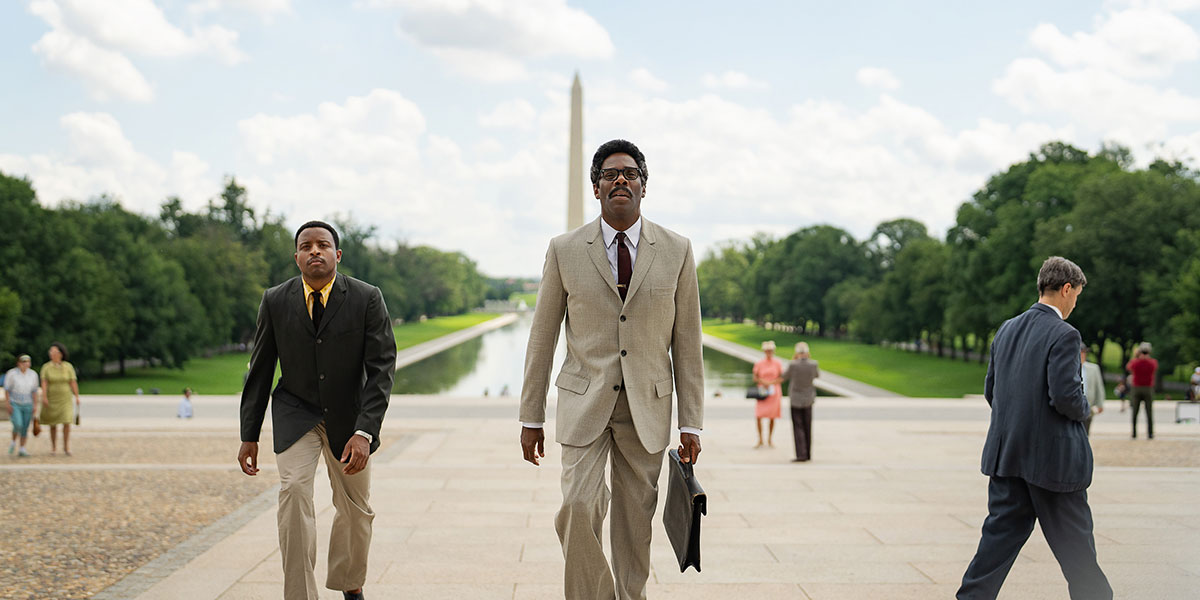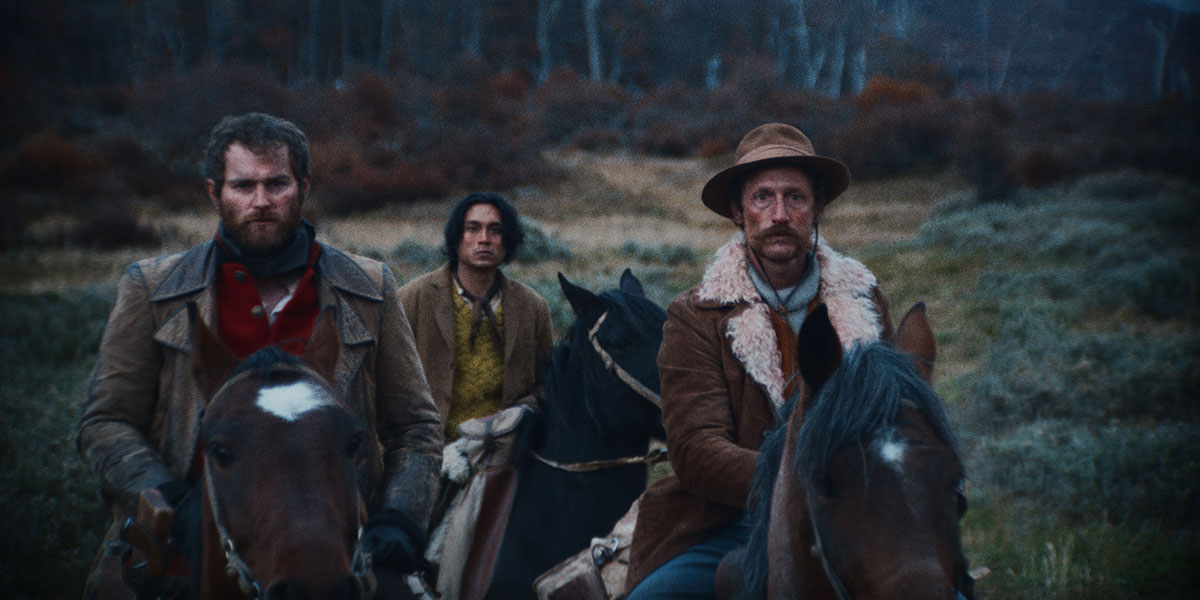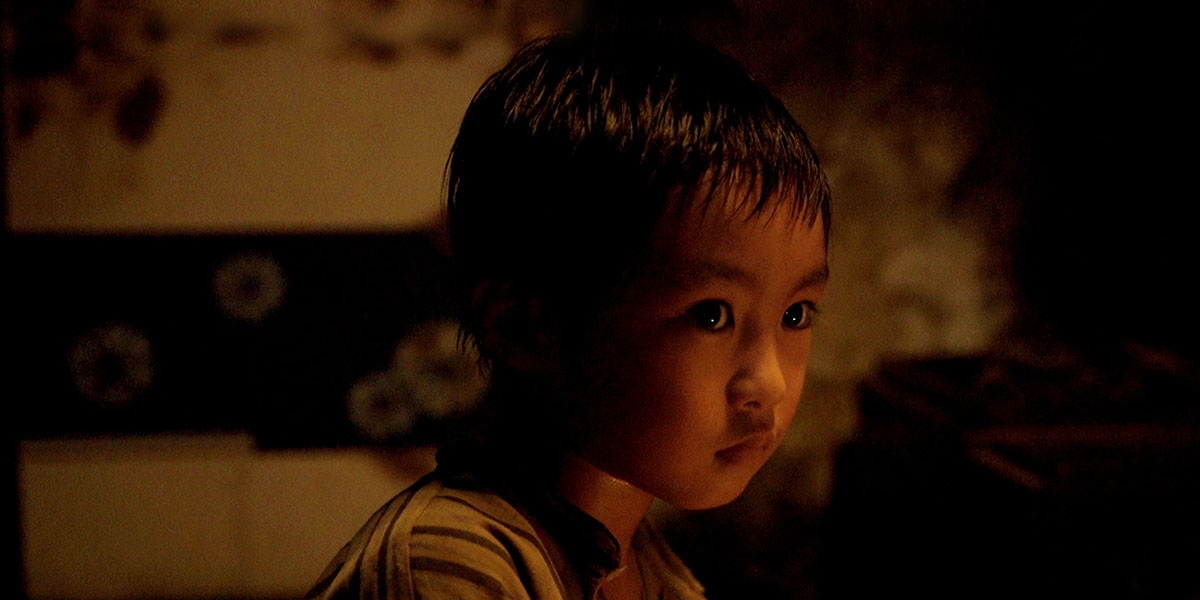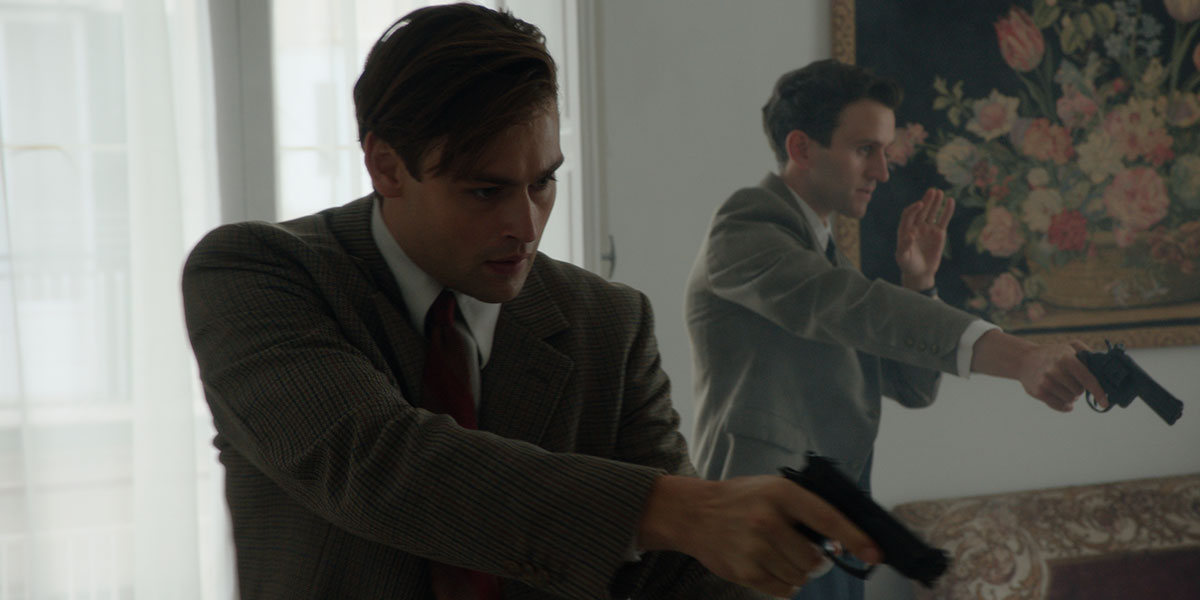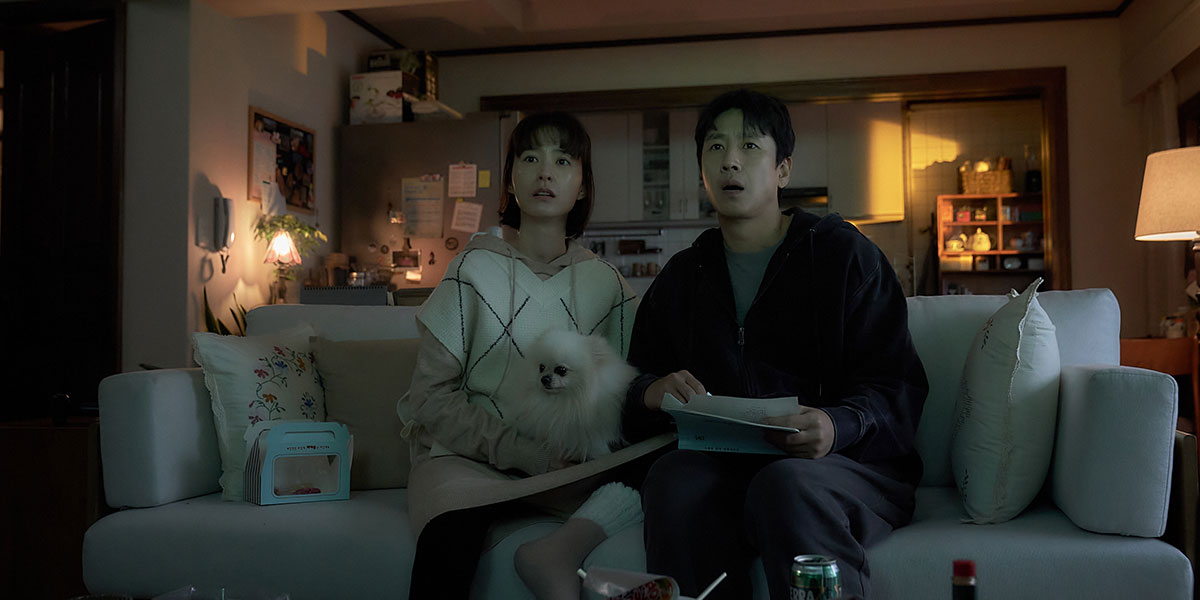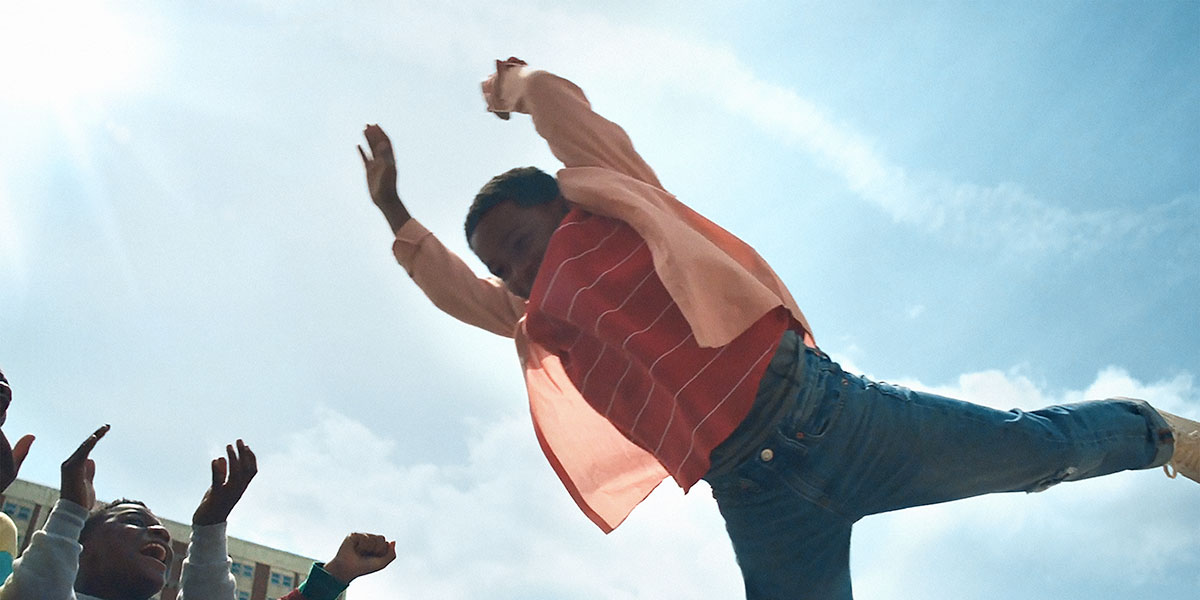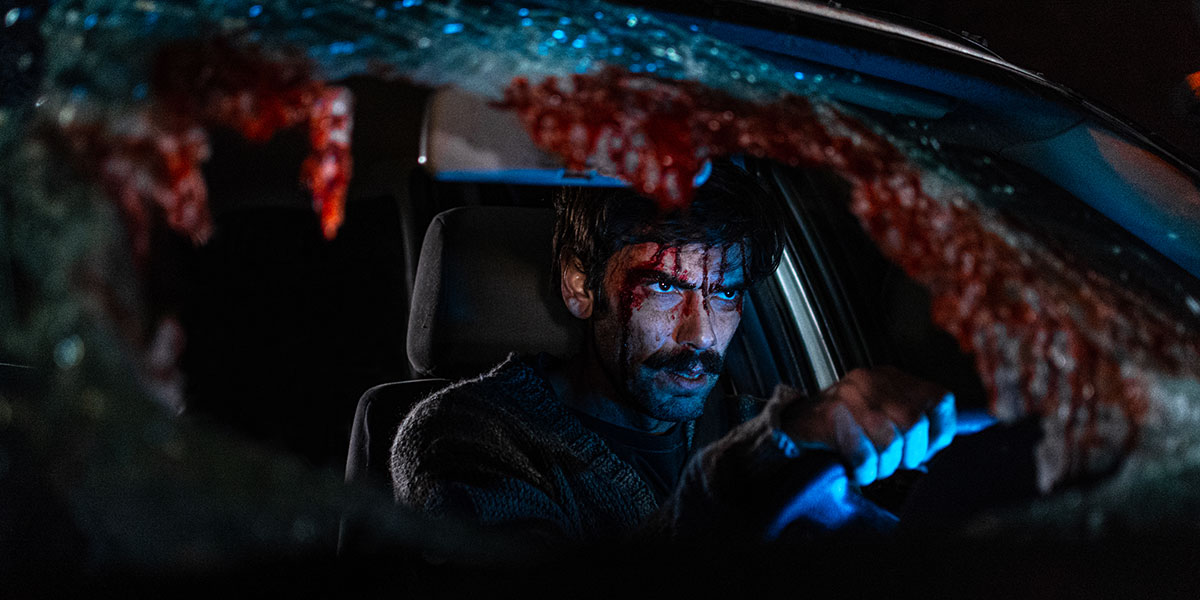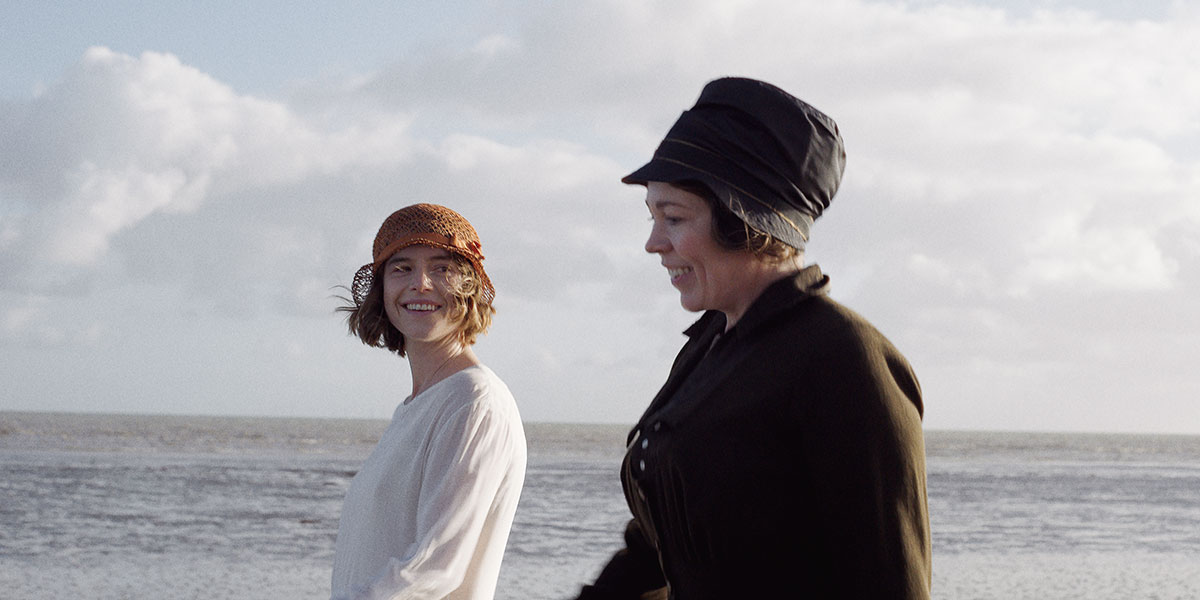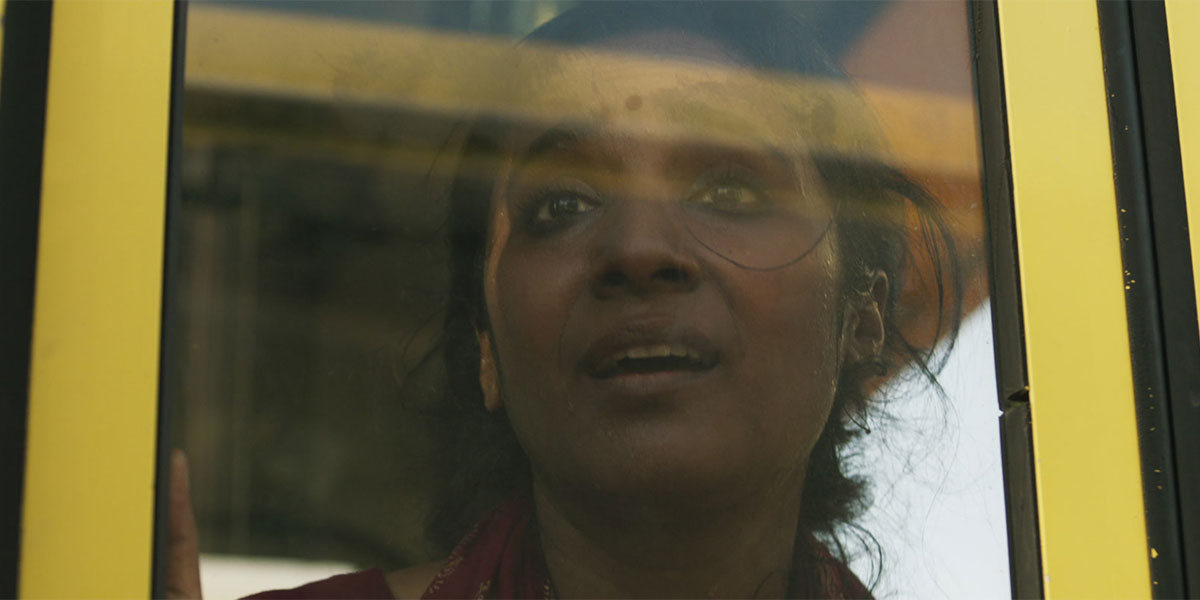|
By Sean Boelman and Tatiana Miranda
NewFest is known as one of the premier LGBTQIA+ film festivals in the United States, and this year's lineup — for its 35th edition — was particularly strong, filled with high-profile awards contenders with queer themes or by queer filmmakers. Equally exciting, though, are the indies and international films by up-and-coming voices in the queer cinema community.
We at disappointment media were glad to have again covered this year's edition of NewFest. Here are some quick thoughts on a few of the films we were able to see as part of this year's festival. All the Fires
Review by Sean Boelman
Mauricio Calderón Rico's All the Fires is a visually stunning film, with the imagery and atmosphere doing a lot of the heavy lifting to keep the viewer enthralled in the story. The film follows a teenage pyromaniac who begins to question his sexuality, and just as it may seem, the film arguably bites off more than it can chew. Although there are some great individual pieces at play here narratively, they never quite cohere into something as riveting as one might hope. It's definitely a slow burn (pun intended), but the gorgeous cinematography — making extensive use of firelight — is enough to make this drama mostly transfixing.
Almamula
Review by Sean Boelman
The Argentine film Almamula (known in English as Carnal Sins) is a horror-esque fantasy that uses its folkloric premise to create a fascinating exploration of the queer identity. Following a teen boy who must come to terms with his sexuality, as he learns of a local legend of a creature that takes the sexually impure, it's clear where the symbolism and metaphors of this film are heading, but Juan Sebastián Torales's script nonetheless uses these images and concepts effectively to explore his characters and themes. As the feature debut of Torales, Almamula shows tons of potential — even if it doesn't always deliver in its own right.
Eileen
Review by Tatiana Miranda
Based on the award-winning book by Ottessa Moshfegh, Eileen is an eerie drama filled with subtle queer undertones and captivating performances. The film stars Thomasin McKenzie in the titular role and Anne Hathaway as Eileen's coworker and potential friend, Rebecca. Set in 1964 Massachusetts, it watches like an imitation of a Hitchcock film. Although some of the more off-putting aspects of the plot and Eileen's character don't penetrate as harshly as they do in the source material, the film still excels in keeping the audience on their toes and questioning the morals of the main characters. Aesthetically delightful, Eileen is sure to find a cult classic status among fans of thrillers and psychosexual dramas.
Golden Delicious
Review by Sean Boelman
There are not enough queer stories featuring people of color protagonists, and for that alone, Jason Karman's Golden Delicious deserves some merit. However, the script by Gorrman Lee is severely lacking, with an inconsistent approach to its themes, which makes it hard to buy into the film despite its heart undeniably being in the right place. The dialogue is nearly insufferable in how out-of-touch it feels, with several lines standing out as things that teenagers would absolutely never say. That being said, if there's one thing clear from watching this, it's that young actor Cardi Wong has a bright future ahead of him — if only he can find a script that allows him to better use his talents.
The Lost Boys
Review by Sean Boelman
Not to be confused with the cult classic 1980s vampire movie, or the characters from Peter Pan, Zeno Graton's The Lost Boys is a conventional, albeit mostly powerful film following a group of teenagers at a youth correctional facility. It's surprising how seamlessly the script by Graton, along with Clara Bourreau and Maarten Loix, balances its various themes — sexual identity, race, and rehabilitation — all under the central thematic umbrella of freedom. However, perhaps the biggest highlight of the film is the lead performance by young actor Khalil Gharbia, who brings an extraordinary amount of empathy to the role.
Orlando, My Political Biography
Review by Sean Boelman
Paul B. Preciado's Orlando, My Political Biography is simply an incredible feat of filmmaking. Combining a loose adaptation of the themes and ideas of Virginia Woolf's eponymous groundbreaking and incendiary novel with a series of personal stories from an all-trans and non-binary ensemble, the film is a beautiful and profound ode to the strength of the LGBTQIA+ community in the face of massive adversity. Preciado's unorthodox style is captivating, resulting in an experience that manages to devastate and inspire in turn. This truly is one of the best documentaries of the year.
Queen of New York
Review by Sean Boelman
Queen of New York should be a fascinating documentary, as it follows the campaign of Marti Cummings — the non-binary drag performer who made history as the first non-binary candidate to run for the New York City Council — and for the most part, it is. However, in the final 30 minutes of the film, it unfairly turns into a hit piece against Cummings's Latino opponent. A lot of accusations are thrown around and not explored in much depth. The result will leave a sour taste in many viewers' mouths. After all, Cummings's campaign was about giving a voice to the voiceless — so why is the film pitting underrepresented voices against one another, rather than suggesting minority communities come together to lift each other up.
This Place
Review by Sean Boelman
V.T. Nayani's This Place tells the story of two young women from different cultures forced to confront their own identities while they grow closer together. What is frustrating about the film is that there is a legitimately great message and compelling story, but it is dragged down by cringe-worthy dialogue and less than impressive performances. Despite leads Devery Jacobs and Priya Guns' great chemistry together, their line delivery is so stilted that it's hard to take them seriously — although as much of the fault here can be blamed on the script as the performances. Still, the film will win viewers over by the end with its charming exploration of intersectionality.
The 2023 edition of NewFest runs October 12-24 in New York City.
0 Comments
By Sean Boelman
Like so many regional festivals this year, the Chicago International Film Festival has an unusually stacked lineup, with plenty of excellent films encoring from the various fall festivals — as well as a few premieres that audiences will get to see for the first time in Chicago. From high-profile and buzzy awards contenders to hidden indie gems, there are plenty of great flicks to see at this year’s CIFF.
We at disappointment media are excited to be covering this year’s Chicago International Film Festival from afar, catching up on some of the films we missed elsewhere on the festival circuit, as well as checking out some of the exciting premieres playing in the Windy City Be sure to keep an eye on this page, as we will be updating it with more thoughts on films playing at this year’s Chicago International Film Festival as we see more movies.
Second Update: 10/22/2023
Hard Miles
R.J. Daniel Hanna’s Hard Miles is the type of indie crowd-pleaser that the festival circuit was meant to discover. The film is based on the inspiring true story of a social worker at a youth prison who assembles a peloton of young convicts and takes them on a 1000+ mile ride to teach them a lesson about perseverance and hopefully encourage them to find themselves. Although the beats the film hits are a bit predictable and sentimental, there's no denying that the film pulls on the heartstrings at the right times. Matthew Modine has also never been better than he was in this leading role, which is equal parts empathetic and uplifting.
In the Rearview
Like the many Ukraine-focused documentaries that have appeared on the festival circuit in the nearly two years since the invasion of Ukraine by Russia in February 2022, In the Rearview is certainly not an easy watch — but that doesn’t mean you shouldn’t watch it. Maciek Hamela’s documentary is essential viewing, and part of what makes it work so well is its simple conceit. The film follows the passengers of a vehicle that is being used to transport civilians seeking refuge out of the country. Although the camera occasionally does leave the vehicle, most of the time, the film is presented as if it were looking in the rearview mirror of the car. The result is an experience that is subtly harrowing and quietly powerful.
First Update: 10/19/2023
Paradise Is Burning
North American Premiere
Mika Gustafson’s Paradise Is Burning debuted at this year’s Venice Film Festival before making its North American premiere at the Chicago International Film Festival. Although the film doesn’t reinvent the wheel with regards to its genre, this story of a group of three tight-knit sisters who face separation by child services due to an absent mother is absolutely heartbreaking. All three young actresses — Bianca Delbravo, Dilvin Assad, and Safira Mossberg — are fantastic in their roles, but what makes this stand out from other poverty-centric narratives is Gustafson’s incredibly empathetic approach to the narrative that focuses less on the trauma of their situation than the connection that draws them together.
Stamped From the Beginning
It’s impossible to deny the artistry or the anger of Roger Ross Williams’s documentary Stamped From the Beginning, based on the book of the same name by Dr. Ibram X. Kendi. The film is an exploration of the misinformation that has been used to fuel racist ideology for generations, and it is unafraid to challenge some of the institutions and figures that have been revered throughout American history. Although the film clearly struggles with condensing an entire book’s worth of material into a runtime under 90 minutes, kinetic editing and powerful messaging keep the film entirely engaging and completely affecting.
Original Post: 10/12/2023
Alien Island
U.S. Premiere
The documentary Alien Island tells one hell of a story: a group of radio operators in Chile in the 1980s amidst the military dictatorship think they have discovered an extraterrestrial race who has taken up residence on a nearby island. When the film is able to connect the stranger than fiction story to the political undercurrents happening in its societal context, it is utterly fantastic. The film also boasts some of the most impressive reenactment sequences of the year, shot in the black-and-white aesthetic of a Twilight Zone episode or the type of sci-fi movie that would feel at home in a drive-in theater. Like many UFO-centric docs, the nuttiness does become a bit overwhelming at times, but the genuinely interesting story keeps this one engaging.
Banel & Adama
U.S. Premiere
Ramata-Toulaye Sy’s feature debut Banel & Adama was recently announced as the Senegalese submission for the Best International Film Oscar. While the film is certainly gorgeous thanks to excellent cinematography by Amine Berrada, it feels somewhat bland on a narrative level. The film’s story of a couple of star-crossed lovers who face the disapproval of their community is overly familiar. While the performances by Khady Mane and Mamadou Diallo are solid, and the film is very authentic with its love story, the film doesn’t add anything particularly new or perceptive to its well-worn beats.
The Crime Is Mine
French master François Ozon’s latest film, The Crime Is Mine, is arguably his most mainstream film in quite a while, and unfortunately, it lacks the emotional heft of his recent output. However, even those looking for a diverting caper might find themselves thoroughly disappointed by this tonal mess of a comedy. Following an actress who is accused of murdering a producer and then acquitted, only for a new witness to come to light, it’s clear that this is meant to be a reversal of its genre. Which genre the film reverses is hard to identify, though. It starts as a period murder mystery, then becomes a courtroom drama, before finally settling as a film industry farce. It’s altogether too much, even in the hands of a filmmaker as talented as Ozon. Not even a rousing third act turn by the legendary Isabelle Huppert can salvage this would-be romp.
The Echo
Tatiana Huezo’s documentary The Echo is undoubtedly one of the most visually stunning documentaries you’ll see this year. In fact, this verité portrait of a matriarchal community in rural Mexico is shot so cinematically, and its story told with such an eye for character, that it’s easy to forget what you are watching is a documentary and not an engrossing coming-of-age tale. Huezo’s tender lens stands out within the genre of documentary filmmaking thanks to its refusal to other-ize its subjects’ traditions and practices. The result is a film that feels deeply humanistic, even if it is on the slight side.
Here
Bas Devos’s Here, which premiered at Berlinale earlier this year to great acclaim, shares a lot in common with another film that has gotten more attention on the festival circuit — Fallen Leaves. Both are unorthodox, gentle love stories following two people from seemingly opposite lifestyles, finding themselves inexplicably drawn together by fate. The result, particularly with Here, is a romance that is undeniably lovely to watch, offering some profound observations on the power of connection. And, as one of the duo in Devos’s film is a byrologist, the story lends itself to some stunning 16mm nature cinematography. For those looking for a reprieve from some of the heavier selections in this year’s fest, Here is the way to go.
In Water
Cinephiles often joke that Korean filmmaker Hong Sang-soo makes the same movie over and over again since there are so many similarities in their characters, themes, and quaint, dialogue-driven narratives. Although one of his two 2023 films, In Water, doesn’t defy expectations in a narrative sense, it does take an ambitious swing formally — and it doesn’t totally pay off. Following a trio of friends who wander around an island to which they have traveled to make a film together, the most distinctive aspect of the film is that it is intentionally out-of-focus for a majority of its runtime, making most of the images look blurry. While the conceit is intriguing, the execution is unfortunately often grating.
Raging Grace
For much of its first third, Paris Zarcilla’s Raging Grace resembles last year’s Nanny — another anxiety-inducing social horror film that used its story to comment on the immigration crisis in the United States. However, in the second act, the film takes an unexpected turn, resulting in one of the wildest hours of genre cinema you’ll see all year. Max Eigenmann’s performance as the Filipina immigrant caretaker who uncovers a dark secret long buried by the family she works for heralds a breakout waiting to happen, thanks to her simply captivating screen presence. While the cinematography, editing, and score are all a bit obvious at times, the script is more than sharp enough to keep viewers utterly gripped to the screen.
The 2023 Chicago International Film Festival runs October 11-22.
CIFF 2023: The Chicago International Film Festival Presents Some of the Buzziest Films of the Fall10/10/2023
By Sean Boelman
For its 59th edition, the Chicago International Film Festival is bringing Chicago moviegoers a lineup that is nothing short of stacked. Thanks to a focus on indie productions, the festival has still been able to attract plenty of A-list talent to present their movies despite the ongoing SAG-AFTRA strike (many films have secured an interim agreement).
From some of the most anticipated awards contenders of the fall, hot off of their festival debuts, to Chicago-based productions that will undeniably be of interest to homegrown audiences, there’s no shortage of great films to see at this year’s festival. Here are a few recommendations of movies we think you should check out: Four Daughters
CIFF has always had a focus on showcasing international cinema, including many films that have been submitted by their respective countries for the Best International Feature Oscar. Kaouther Ben Hania’s latest movie, Four Daughters, is her second to represent her country of Tunisia in the awards race, and this blend of documentary and drama is absolutely fascinating and often harrowing. Although the film feels a bit too convoluted for its story for much of its first hour, it quickly becomes clear that there are more sinister forces afoot, and when they do take over, the result is crushing.
The Echo
Tatiana Huezo’s documentary The Echo is another fascinating documentary about a matriarchy, but on the opposite side of the world, taking place in a rural village in Mexico. The hero of this film is undeniably its cinematography, which is exquisite and beautiful. However, it is also impressive how much Huezo is able to get viewers invested into the characters’ lives, allowing the movie to play out like a real-life coming-of-age tale.
Here
Bas Devos’s Here is a restrained, quiet film, but it’s quite successful as a lovely little romance. Following a construction worker and a byrologist who form an unexpected connection after a chance encounter, it’s a rumination on connection, but it never feels the need to wax poetic in a way that feels pretentious. Instead, we simply spend time with these characters — and in some gorgeous environments captured with stunning 16mm cinematography, no less — making this an utterly splendid watch.
Raging Grace
Raging Grace won the jury prize in the narrative competition at this year’s SXSW, and given how rare of an accomplishment it is for a genre movie to take home a top award like that, it should be immediately intriguing. While the first act of the film is compelling, the last two-thirds of Paris Zarcilla’s debut go off the rails in a way that will have you on the edge of your seat, and maybe even screaming at the screen in disbelief and anticipation.
Robot Dreams
Pablo Berger’s Robot Dreams is not just one of the best animated movies of the year, but one of the best movies of the year, period. Based on the graphic novel by Chicago-born artist Sarah Varon (who will be in attendance for the festival screening), the film follows an anthropomorphic dog who purchases a robot to be his best friend. Completely without dialogue, the movie nonetheless manages to be undeniably moving — and just as adorable as you could possibly hope.
The 2023 Chicago International Film Festival runs October 11-22, 2023.
By Sean Boelman, Daniel Lima, and Erin M. Brady
Fantastic Fest, occurring in Austin, Texas each September, is known as one of the most reputable genre festivals in the world, bringing together cinephiles from around the world to celebrate the latest in weird and macabre cinema.
We at disappointment media were excited to again cover the festival remotely. Here are some of our brief thoughts on some of the films that played at this year's festival: The Animal Kingdom
Review by Sean Boelman
That the fantasy film The Animal Kingdom was even considered for the short list for France's submission for the Best International Film Oscar in the same breath as such movies as Anatomy of a Fall and eventual selection The Taste of Things is frankly baffling — especially when you realize it's not great. Although Thomas Cailley's film has plenty of interesting ideas, its allegories (yes, plural) are muddled down by one another, and the CGI is lackluster, resulting in an experience that is frequently frustrating rather than provocative. The movie also wastes its cast, including the talented Romain Duris and Adèle Exarchopolous — yet another example of this disappoiting film not living up to its potential.
The Coffee Table
Review by Daniel Lima
Where does a story go when it begins with its most shocking reveal? In the case of The Coffee Table, nowhere. A married couple purchases a grotesque coffee table, only to lead to disaster. The film immediately plays its only card, and all it has left to do is remind the audience of the card it played until the credits roll. As shocking as that moment is, it hangs over the rest of the movie, stymieing any attempt to deepen the characters or get the audience invested in what follows. In spite of that, the ensemble is impressive, particularly Estefanía de los Santos. A shame to see them go to waste.
The Cult of AGFA Trailer Show
Review by Erin M. Brady
If you've ever wanted that warm feeling of watching previews to last 80 minutes, then The Cult of AGFA Trailer Show is exactly the movie you need. The editing done for each real-life trailer and theatrical bumper is minimal, yet impactful in conveying the breadth of cult cinema — classics like The Doom Generation and forgotten exploitation fare such as The Other Side of Madness get their equal spotlight. It may not be the most exciting film at Fantastic Fest, but it does go to show how important the genre film, in all its various forms, can be in these times of studio greed and blockbuster fatigue.
Mushrooms
Review by Daniel Lima
An old woman foraging through a Polish forest happens upon a young couple, dressed in strange garb, who claim to be lost. The woman doesn’t seem to trust them, and vice versa. For the next hour it’s left to the audience to puzzle out what exactly either party wants from the other. The mystery of Mushrooms is fun to work out at first, in large part because of the trio of solid performances. However, once it becomes clear the film will merely idle forward until the final reveal, it becomes tedious. That ultimate reveal is either a brilliant stroke that meaningfully recontextualizes the entire movie, or heinous and exploitative. At the moment, I lean towards the latter.
Kill Dolly Kill
Review by Erin M. Brady
It's difficult to objectively review any Troma film in the traditional sense. If you're looking for that to change with Kill Dolly Kill, you're sorely mistaken. The signature Troma low-budget sleaze is still oozing from every scene, and the over-the-top performances and writing sell this. However, there's only so much that can be done to stretch out one joke, and two poorly-choreographed lesbian sex scenes don't mask this issue.
One-Percenter
Review by Daniel Lima
Another collaboration between director Yudai Yamaguchi, star Tak Sakaguchi, and action choreographer Kensuke Sonomura, One-Percenter is both a biting satire and loving ode to action cinema. Sakaguchi plays an action star location scouting for the true-to-life action epic he’s always dreamed of, who stumbles onto an attempted yakuza execution and decides to intercede. What follows is some of the most electrifying fights of the year, with a fluidity, grace, and kineticism that is jaw-dropping. Many references are made to both Sakaguchi’s career and the Japanese action film industry, and the philosophical underpinnings of Tak’s own perspective of his craft make the beautifully orchestrated violence all the more powerful.
She Is Conann
Review by Erin M. Brady
Much like experimentalist Bertrand Mandico's previous work, it's difficult to explain the appeal of his latest, She is Conann. A showcase of the hero's journey gone mad, the film outlines the life of a female barbarian who's lived as many lives as she's brutally taken. Unfortunately, in its attempts to juggle various societal woes (fascism, performative femininity, and capitalist-funded art among others), none of them come together to elevate it beyond the admittedly stunning visuals. You admire it and what it sets out to do, rather than actually like it. Maybe that's the point, but it's still disappointing to see such an ambitious film cannibalize itself.
Sri Asih: The Warrior
Review by Daniel Lima
The second film in the Bumilangit Cinematic Universe, an attempt at a superhero franchise out of Indonesia, Sri Asih: The Warrior bodes ill for the future of the series. A generic story about a woman who is a reincarnated goddess fated to save the world, the film suffers from a bloated narrative that refuses any impulse to build its characters or world, beyond merely baiting future installments. The commentary on economic inequality embarrassingly is shallow, and the low-budget Wonder Woman knockoff action is ugly as sin, particularly compared to the solid, grounded fights at the start of the film.
Suburban Tale
Review by Daniel Lima
The directorial debut of Stephen Alexander, Suburban Tale, follows a distressed young woman who is called back home by her estranged family to help care for a demon-possessed boy as the family prepares for a wedding. She slowly begins to exhibit signs of sickness, beginning a surreal, nightmarish descent into her own psyche. The practical effects work is commendable, and star Rashmi Somvanshi gives a dynamic performance, but the film is so coy with who she is that by the time that revelation arrives, it is impossible to connect with her.
You're Not Me
Review by Erin M. Brady
Christmas seems to be a recurring theme during this year's Fantastic Fest, and You're Not Me sets out to showcase the most wonderful time of the year as the worst. Marisa Crespo and Moisés Romera's film is an oftentimes engaging look into the horrors of an unsupportive family. Its lead character is a lesbian who ran away from her wedding to a man three years prior. However, it begins to lose momentum once it moves into a muddied immigration parable, before ultimately crashing in its final moments. It's a shame, too, as its well-done pacing and direction will make you anticipate a payoff that never actually comes.
The 2023 Fantastic Fest ran September 21-28 in Austin, Texas.
By Sean Boelman The 2023 Toronto International Film Festival might have been on a smaller scale than usual due to the SAG-AFTRA and WGA strikes preventing much of the big-name talent from congregating on Festival Street as they have in the past. Still, the film festival featured plenty of great international and independent cinema to check out, and we, at disappointment media, got to see over 80 movies between our time on the ground and through links before and after the fest. Here are some of our thoughts on many of the films we did not give a full review to: About Dry GrassesNuri Belge Ceylan’s About Dry Grasses debuted earlier this year at the Cannes Film Festival to great acclaim. While there is a great movie in there in the film’s 3+ hour runtime, it all too often feels like Ceylan is throwing everything to the wall to see what sticks, causing the film to feel somewhat overwhelming. The second act of the film is fantastic, but the first act is a bit too slow in its set-up, and the final third is where the film goes really ambitious only to swing and miss. You have to admire what Ceylan is trying to do here, but the final result is more frustrating than satisfying. Arthur&DianaSara Summa’s film Arthur&Diana is reminiscent of the post-French New Wave work of filmmakers like Serge Gainsbourg. That’s to say it’s entirely pleasant, but there’s not a whole lot of substance to the film. Summa stars alongside her real-life brother Robin Summa in an auto-fictional tale about a duo of siblings who take a road trip from Berlin to Paris. The characters are compelling enough thanks to the film’s exploration of the family dynamic, but where Arthur&Diana shines is its visuals, which lend the film some absolutely exquisite vibes. Close Your EyesVictor Erice’s first film in 30 years, Close Your Eyes, is the type of nuanced and layered film that demands multiple watches to fully understand it. Perhaps a tad meandering, Erice’s dense film following a filmmaker who investigates the disappearance of his friend and actor on the set of an unfinished film decades earlier nonetheless thrives on its subtlety and poeticism. The film also features a tremendous lead performance by Manolo Solo. Concrete UtopiaThe South Korean disaster epic Concrete Utopia is like any number of disaster movies you have seen before. Although the film boasts some great CGI and production design, the story lacks the requisite thrills to make the genre work, and the commentary is too familiar to the genre to leave much of an impact. One has to at least admire the film’s massive scale, but the storytelling unfortunately leaves something to be desired. The Dead Don't HurtViggo Mortensen made his directorial debut a few years back with the underwhelming LGBTQ+ drama Falling, but his sophomore effort, The Dead Don’t Hurt, is a massive upgrade. Following two immigrants who form an unexpected love for one another, the film’s script is its weakest part — suffering from an unclear and needlessly convoluted narrative structure that makes the film hard to follow. Still, the visuals of the film are magnificent, as are the performances from Mortensen and Vicky Krieps, allowing the film to hit its intended emotional beats with ease. Dear JassiTarsem Singh is a relatively acclaimed filmmaker among cult film audiences, but his latest film — and his first set in his native India — is much more conventional than his past work. Dear Jassi starts as a relatively harmless romance about a couple in courtship. However, after the first hour, the film turns into straight-up trauma porn, and it’s impossibly miserable to sit through. While many people will undoubtedly sing the praises of the film claiming that it’s “important,” there have been dozens of movies to explore this theme much more effectively. Death of a WhistleblowerThe South African film Death of a Whistleblower has all the makings of a great political thriller. It has a timely story about the political assassination of journalists in authoritarian countries, and the direction is entirely competent, but the formulaic nature of the script threatens to undermine any resonance it could have had. Everything feels so exaggerated and melodramatic that it is difficult to give any credence to the very real problem the film hopes to call attention to. Fallen LeavesIn a festival with lots of long, heady films, it was nice to see something as quaint and short as Fallen Leaves. This Polish romance by Aki Kaurismäki doesn’t have a lot going on beneath the surface, but sometimes all a film needs to work is a satisfying story and strong execution. The film’s highlights are its two leads, Alma Pöysti and Jussi Vatanen, who both give incredibly charming performances with some of the best chemistry you will see all year. FinestkindOscar-winner Brian Helgeland’s latest film, the maritime drama Finestkind, is hardly up to the caliber of the filmmaker’s greatest work (L.A. Confidential, Mystic River). However, it is a mostly entertaining and very old-school film, the likes of which we don’t see often anymore. Ben Foster again proves that he is one of the most underrated actors working in Hollywood today because he essentially carries Finestkind on his back. By the end, the characters will win you over, even if the story mostly hits predictable — and often over-the-top — beats. FingernailsGreek filmmaker Christos Nikou (Apples) began his career as an AD for Yorgos Lanthimos, so it’s hardly surprising that his own style shares so many commonalities. His English-language debut, Fingernails, indeed ends up feeling like a lite version of Lanthimos’s own English debut The Lobster. Yet, although the themes and approach on display here are hardly original, there’s something undeniably charming about this uncanny film. There are also some very strong performances on display from Jessie Buckley, Riz Ahmed, Luke Wilson, and Jeremy Allen White. Great AbsenceKei Chika-ura’s Great Absence is a much more restrained film than one would expect considering its subject matter. Although there are a few showy moments that are obligatory for the subgenre, the film is mostly very subtle in telling this story of a son dealing with the deterioration of his estranged father with dementia. The script is perhaps a tad on the convoluted side in a structural sense, but the excellent performances by Mirai Moriyama and Tatsuya Fuji keep the film feeling firmly grounded. Green BorderAgniezka Holland’s Green Border is unquestionably one of, if not the single most upsetting films that played at this year’s festival. Exploring the refugee crisis in Poland from a variety of perspectives — the refugees themselves, the border guards, and the activists hopelessly trying to protect their rights — the film paints a very bleak and devastating portion of this humanitarian crisis. Although the film is a tad repetitive, its repetition is effective, as it allows the film to show the devastating cycle these refugees are forced to experience. His Three DaughtersFilmmaker Azazel Jacobs is primarily known for his deadpan comedies, and while there are aspects of that in his latest work, His Three Daughters, the film also packs much more of an emotional pang than one would expect. Following three sisters who convene as their father nears his final days, the film is an acting showcase for its three leads — Elizabeth Olsen, Carrie Coon, and Natasha Lyonne. Lyonne in particular shines, showing a vulnerability that fans of her more comedic work might not have expected. Inside the Yellow Cocoon ShellThien An Pham’s Vietnamese drama Inside the Yellow Cocoon Shell debuted at the Cannes Film Festival earlier this year to great acclaim, and it’s understandable why. Although the film’s three-hour runtime can be a bit taxing, its quiet reflection on faith in its many forms is often subtly moving, restrainedly poetic, and beautiful. The film also features some of the most breathtaking imagery you’ll see in any film this year. KILLNikhil Nagesh Bhat’s KILL might not have a great script, but who needs strong dialogue when you have action as excellent as this? The film’s simple premise — billed by many as “The Raid on a train” — is merely a catalyst to kick off an intense nearly two hours of close-quarters combat. Lakshya Lalwani is a great action hero, but even more impressive is Raghav Juyal, who is downright menacing as the villain. It’s an extremely brutal film, so not for the faint of heart, but those who enjoy international action cinema will find that this delivers exactly what it promises. La ChimeraAlice Rohrwacher’s La Chimera is a visually splendid film, but it’s just hard to understand how a movie about a group of grave robbers ended up feeling as uninteresting as this did. Lead actor Josh O’Connor is fantastic — even despite acting outside of his native English for a majority of the runtime — and the cinematography and score are both completely enchanting. However, the film simply takes too long to get moving, and once it does, it’s a bit too late to fully grip the viewer. Les IndésirablesLadj Ly’s first feature Les Misérables was an incendiary exploration of police brutality against minority communities in France, and his follow-up Les Indésirables feels like a spiritual successor exploring the bureaucratic side of the same coin. Following the residents and legislators of an impoverished suburb of Paris, the film asks some interesting questions, but attempts to come at this issue from too many perspectives for its message to be fully impactful. Lil Nas X: Long Live MonteroFor the most part, Lil Nas X: Long Live Montero is a pretty standard tour documentary for the global megastar, tracing the path of his unlikely rise to fame. The most interesting portions of the film are those in which he discusses his sexuality — his open identity as a gay man being one of the things that sets him apart in the music community. The professionally-shot concert footage is also very strong and immersive, although directors Carlos López Estrada and Zac Manuel make the questionable choice of often cutting to fan-shot cell phone footage, which draws you out of any sense of being in the moment that the film almost creates. MemoryThe biggest weakness of Michel Franco’s Memory is its script, which has dialogue so direct that you can tell it was written by someone for whom English is not their first language. Once you get past the unnatural stoicism of the dialogue, you are left with a poignant, somber film about the things we want to remember and the things we hope to forget. It’s messy, but so too is our memory. Franco also manages to get career-best performances out of both Jessica Chastain and Peter Sarsgaard. Menus-Plaisirs Les TroisgrosMaster verité documentarian Frederick Wiseman is back at it again with another four-hour documentary, this time pointing his camera at the kitchen of a Michelin star restaurant. As expected, Menus-Plaisirs Les Troisgros is utterly captivating, especially if you are interested in the inner workings of a kitchen (and with the popularity of The Bear, who isn’t at this point). There is a 30-ish-minute tangent where Wiseman follows the subjects into the agricultural side of their business, looking into the farms from which the restaurant sources its cheese and vineyards for its wine, but apart from that, every minute of this documentary is fascinating. The Monk and the GunBhutanese filmmaker Pawo Choyning Dorji is two-for-two for getting his country’s submission for the Best International Film Oscar. However, his second feature The Monk and the Gun is a massive improvement over Lunana: A Yak in the Classroom, telling a much more unconventional story in a way that feels far more thoughtful. The Altman-esque ensemble drama about a community on the brink of transformation is not only funny, but offers some very smart commentary on its themes of democracy and violence without bashing it over your head. The Movie EmperorNao Hing’s film industry satire The Movie Emperor was one of the funniest movies at this year’s festival — you just had to know what you were getting yourself into. The film stars international superstar Andy Lau as a fictionalized version of himself (named “Dany Lau”) as he experiences the rise and fall of fame. It’s honestly surprising to see this film playing at TIFF because it is such a sharp condemnation of film festival culture (although the targets here are primarily European). Still, there are plenty of laugh-out-loud moments that are absolutely ridiculous, and others which thrive on the sharpness of its satire. A Normal FamilyHerman Koch’s The Dinner has been adapted several times before to the screen, and the Korean drama A Normal Family takes a much more expansive approach to the familiar story. Although the film feels a tad bloated and the pacing a tad off, the commentary on privilege is sharp and timely, and the ensemble all turn in strong performances, even when the material feels a bit too melodramatic for its own good. North StarBecause of the SAG-AFTRA strikes, this year’s festival was marked by a slew of films made by actor-directors, as a technicality allowed their filmmakers to bring star power to the festival if they so chose. Unfortunately, many of these ended up being rather mediocre, and Kristin Scott Thomas’s North Star was no exception. Starring an ensemble of Scarlett Johansson, Sienna Miller, and Emily Beecham, alongside Thomas herself, this family drama of three sisters exploring past resentments at the wedding of their mother is frustratingly maudlin to the level of feeling like a Lifetime movie. Not even the A-list cast — many of whom turn in actively bad performances — can save this. NYADDocumentary filmmakers Jimmy Chin and Elizabeth Chai Vasarhelyi (Free Solo) make their narrative debut with NYAD, a biopic of swimmer Diana Nyad, who made history as the first person to free swim from Cuba to the tip of Florida. Like in their documentaries, Chin and Vasarhelyi show an aptitude for capturing seemingly inhuman acts, as the actual swim scenes in NYAD are genuinely fantastic. On the other hand, the rest of the film is a straightforward — and somewhat dull — biopic. Still, Annette Bening and Jodie Foster give strong performances in their roles. The PeasantsDK and Hugh Welchman’s second feature The Peasants follows the same hand-painted animation style of their first work, Loving Vincent. However, in freeing themselves of the artistic limitations of mimicking one artist’s style, they are able to take this approach to even greater heights. That being said, while the film is certainly artistically unconventional, it’s a tad narratively familiar — transposing a somewhat standard palace drama to a peasant community background. It’s very bleak, and almost even hard to watch at times, but the visual artistry on display allows the film to work nonetheless. Perfect DaysWim Wenders’s Japanese-language feature Perfect Days may have started out as a commissioned project to highlight Tokyo public toilets, but it evolved into a poetic and meditative two-hour drama. Although the film does feel stretched thin at times — particularly in the first hour that is a bit more toilet-centric than the back half — it boasts some phenomenal cinematography and works best as a showcase for the legendary Kôji Yakusho, who gives a phenomenally subtle performance in the lead role. Pictures of GhostsBrazilian filmmaker Kleber Mendonça Filho (Bacurau) might have made what is the definitive film about the meaning of cinema in Pictures of Ghosts. After filmmakers like Steven Spielberg and Kenneth Branagh have made their odes to the love of the movies in a narrative format, Filho makes his as a documentary, exploring his relationship with cinema on the different levels at which he has interacted with it: as a filmmaker, as a cinephile, and as a Brazilian. The result is a dream-like odyssey that, while held back a tad by occasionally dry narration, still feels enormously personal and captivating. The Promised LandNikolaj Arcel’s The Promised Land was one of the most entertaining films at this year’s festival — a Western set in the Danish frontier of the Jutland. Mads Mikkelsen gives a commanding performance (although can one expect any less) as the military man who sets out to achieve regality by colonizing one of the King’s inhospitable but still desirable territories. Simon Bennebjerg co-stars as the film’s antagonist, giving a gleefully sinister turn as the local landowner who hopes to thwart the hero’s plans to usurp his power. Although there’s not a lot beneath the surface here, it’s just an all-around well-crafted and entertaining picture. RustinColman Domingo is unquestionably the highlight of the biopic Rustin, but even so his performance feels more like an impersonation than a true embodiment of the figure he plays. The film tells the story of the eponymous gay civil rights activist, and while the undercurrents of the film dealing with his identity as a gay man are there, they play second fiddle to a bland biopic painting with strokes that are too broad. The SettlersFelipe Gálvez Haberle’s The Settlers is, for its first two thirds, pretty much just an entertaining well-crafted Western. The cinematography does a fantastic job of capturing the Chilean landscape, and the script is a sharp — if familiar — commentary on colonialism. However, the film takes a time jump in its final third and turns into something very different and more talky. While that conclusion is nowhere near as strong as what preceded it, there are still plenty of interesting ideas afoot here. Shadow of FireThe conclusion of director Shinya Tsukamoto’s war trilogy, Shadow of Fire, is very different from the type of war movie that viewers might be used to seeing. Told through the eyes of a child, the film follows the struggles of an orphan and the people around him as they attempt to cope with the aftermath of WWII. The first two thirds are unquestionably stronger than the final act, but this slow-burn, poetic rumination of the cost of war explores its familiar themes in a refreshing way. ShoshanaMichael Winterbottom is one of the most versatile filmmakers working today, with the ability to deliver both hilarious comedies and gripping thrillers. His latest film, the Israel-set espionage thriller Shoshana, has a script that is undeniably messy. However, Winterbottom directs the hell out of it, finding a way to consistently keep the viewer on the edge of their seats. The trio of lead performances from Douglas Booth, Harry Melling, and Irina Starshenbaum is also quite strong. SleepJason Yu’s horror-thriller Sleep has been endorsed by fellow Korean filmmaker Bong Joon Ho, so you know you’re in for something good. Of this year’s Midnight Madness lineup, Sleep might have been the most enjoyable. The film follows a woman whose husband develops a disturbing sleep disorder, causing him to experience increasingly unnerving bouts of sleepwalking. While the film starts off as a somewhat restrained and straightforward psychological horror, it goes off the rails with a final 20 minutes that is so wild, you will forget most of what happened before. We Grown NowMinhal Baig’s We Grown Now is the type of coming-of-age movie that clearly means well, but it seems to fundamentally misunderstand the culture it is trying to depict. Set in the low-income projects of the Cabrini-Green neighborhood in Chicago, the film explores ideas such as gentrification and growing up in poverty, but its script feels so unnatural — especially when it gives children lines that are well beyond their age — that it’s hard to take anything seriously. It feels like the work of a first-time filmmaker, not someone who already has multiple features under their belt. When Evil LurksArgentine filmmaker Démian Rugna’s When Evil Lurks contains what might be one of the most terrifying horror scenes in recent memory, along with a couple more that are shockingly effective. Unfortunately, outside of these confined moments, the film has little more to offer. The idea of a possession spreading through a community like a virus is interesting, but doesn’t get explored in the film in a particularly thematically rich way. On top of this, the film has a disabled character whose portrayal is frankly offensive. Wicked Little LettersThe initial conceit of Wicked Little Letters is amusing, but this novelty wears off quickly when its premise wears thin after the first act. Following a sleepy town rattled by the arrival of anonymous foul-mouthed letters, the film reveals its twist too early, resulting in a final act that feels like it’s spinning its wheels until the credits roll. Jessie Buckley is great here, and Olivia Colman eventually gets to shine after starting off somewhat dull, but this British dramedy has one too few tricks up its sleeve to work. Yellow BusWendy Bednarz’s drama Yellow Bus, from the United Arab Emirates, is the type of movie where you can tell that the filmmaker’s heart was in the right place, but the execution is so lackluster that it’s hard to take the film seriously. This story of a mother who seeks the truth behind the death of her daughter in the sweltering heat of a school bus is clearly meant to be a gripping social drama a la the work of Asghar Farhadi, but its performances, dialogue, and production values all leave it end up feeling more like a daytime soap than anything with actual prestige. The 2023 Toronto International Film Festival ran from September 7-17 in Toronto, Canada.
|
The Snake HoleRetrospectives, opinion pieces, awards commentary, personal essays, and any other type of article that isn't a traditional review or interview. Archives
April 2024
Categories
All
|
|
|
disappointment media
Dedicated to unique and diverse perspectives on cinema! |

